SparkTalks Presenter Profiles | Nov. 2023
Max Berkelhammer, PhD Heading link
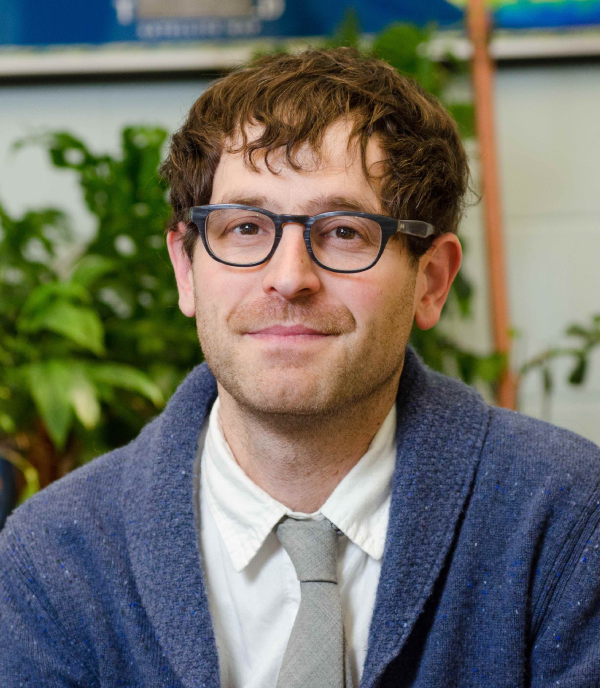
Associate Professor, Earth and Environmental Sciences
Presentation title: Climate Change in Your Neighborhood
Bio: Max Berkelhammer is a climate scientist whose research focuses on how climate change impacts the global carbon and water cycles. Broadly, this work is interested in how changes in land use and land surface processes can serve to either accelerate or mitigate global warming. Max received his PhD in Earth sciences from the University of Southern California and completed post-doctoral research at the Cooperative Institute for Research in Environmental Sciences at University of Colorado. Before pursuing a career in research, he worked as a high school teacher; he maintains an active interest in science education and was awarded both a Silver Circle Award from UIC and the Woodrow Wilson Foundation Fellowship for Excellence in Education. He has over 50 peer reviewed publications and has sustained continuous external funding from the NSF and DOE since becoming a PI. Max is currently a lead PI for one of the Department of Energy’s Urban Integrated Field Lab programs called “Community Research on Climate and Urban Science (CROCUS)” and the National Science Foundation’s Cultural Transformations in the Geoscience Community program.
Abstract: The world is being reshaped by warming and naturally research on climate change has tended to emphasize the global-scale nature of the problem. As such, the primary tool we use to predict Earth’s changing climate — so-called “climate models” — were built to capture global to regional changes in properties such as temperature and rainfall. At this scale, cities often become lost into the averages of the model simulations. Even the most state-of-the-art climate model simulations are currently unable to capture the important local variations in urban climate that lead to profoundly different climate exposure between neighborhoods within a city. These within-city climate gradients propagate different health risks and energy demands for co-existing populations. With almost 80% of the U.S. population living in urban areas, understanding the climate dynamics within cities are thus critical for the country to prepare for climate change through reimagined energy, transportation and food sectors. In 2022, the Department of Energy launched a new program called the Urban Integrated Field Laboratories and has invested $100 million into programs in four cities across the US to study the climate system of cities. UIC is part of this seminal investment through a project called Community Research on Climate and Urban Science (CROCUS). This project will develop new modeling tools to study climate change in Chicago at scales relevant to individual neighborhoods. The model simulations will be complemented by a network of sensors across the city to generate real-time local information on the state of the climate across Chicago. These new data will be used along with intensive feedback from community groups to test solutions to mitigate climate risks and reduce the existing climate inequity in Chicago that leads to higher risk of flooding and heat exposure in the city’s south and west sides. Students from UIC and institutions across the city will be trained through this project in fields such as data science, sensor development and remote sensing. This project will position a cohort of students to excel in the growing climate sector job market and be agents of change for the city.
Allison Bethel, JD Heading link
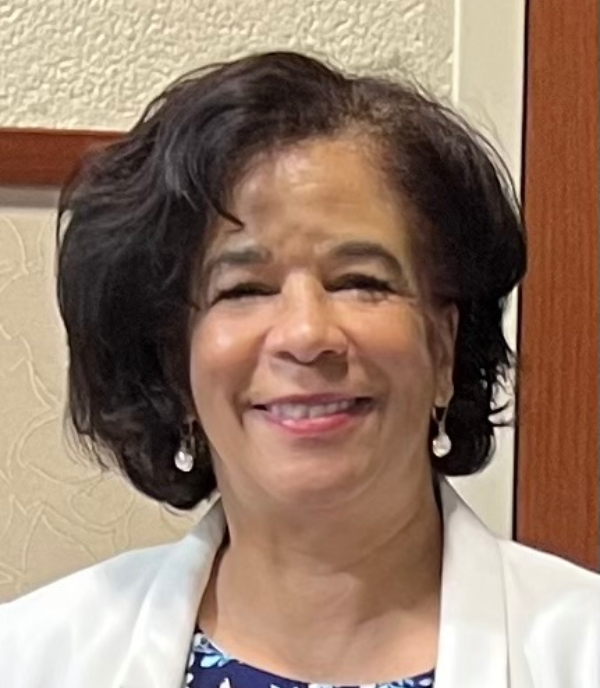
Clinical Professor of Law and Director, Fair Housing Legal Clinic
Presentation Title: Who, What, When, Where and Why of the Fair Housing Legal Clinic
Bio: Professor Allison K. Bethel joined UIC School of Law in April 2008 as a clinical professor of law and director of its Fair Housing Legal Clinic. She is a graduate of Northwestern University and received her JD from the University of Florida. While in law school, she was an active member of BLSA and received numerous awards for advocacy.
Following law school, she worked in the private sector in Florida specializing in civil trial work. In 1996, she joined the Florida Attorney General’s Office and was promoted to Director of Civil Rights for the Office in 2000. In that capacity, she supervised the development and litigation of civil rights cases, legislative initiatives and training programs throughout the State of Florida. Since then, she has taught, lectured and written nationally on fair housing while maintaining an active practice.
Professor Bethel is AV rated, which is the highest rating a lawyer may receive by the Martindale-Hubbell rating system. She is currently Chair of the Alternative Dispute Resolution Section of the Illinois State Bar Association (ISBA).
Abstract: My presentation will discuss who we are, what the fair housing clinic does, and when, where and why we do what we do.
Andrew Boyd, MD Heading link
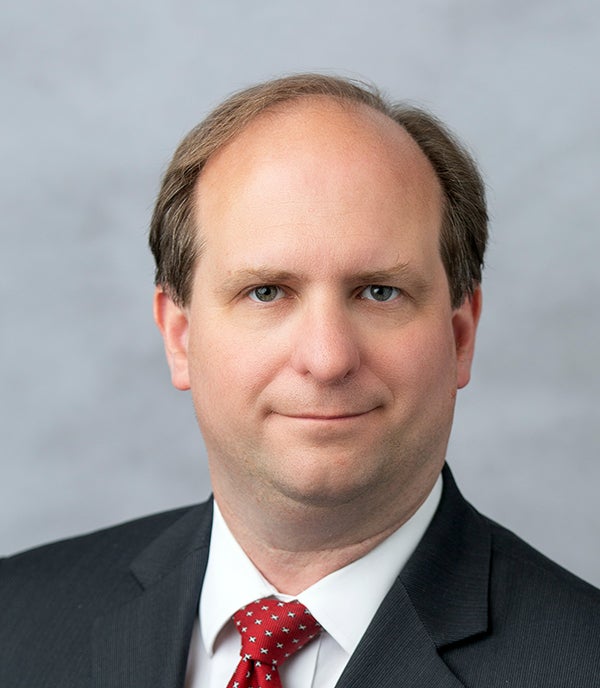
Associate Professor, Biomedical and Health Information Sciences; Associate Vice Chancellor for Research; Chief Research Information Officer
Presentation Title: Data Simplification to Improve Clinical Outcomes
Bio: Dr. Andy Boyd is an associate professor in the biomedical and health information sciences department at the University of Illinois Chicago. He is also the associate vice chancellor for research in computing and data initiatives/chief research information officer. He is also the associate chief health information officer for innovation and research for UI Health. He was awarded 2015 UIC Researcher of the Year in Clinical Sciences, Rising Star. He has over 100 publications (with ~ 3000 citations). He has been a PI, Co-PI, Co-Investigator on numerous grants from numerous agencies.
Boyd’s research focuses on “data simplification to improve clinical outcomes” engaging administrators, researchers and patients. His recent work has measured the vocabulary differences between physicians, nurses, physical therapy and occupational therapy to highlight the challenges and benefits to team-based care. Another area of data simplification to improve clinical outcomes is designing a culturally contextualized patient engagement through dialog agents in cardiology and oncology to improve health behaviors. Boyd has also published on the bias in electronic health record data.
Abstract: Data simplification to improve clinical outcomes targeting patients, administrators and clinicians is my research area. We have applied these techniques to the vocabulary differences between physicians and nurses, physical therapists, and occupational therapists, documenting the differences in scope of practices as well as a new data stream to improve clinical understanding of patients.
Another method of simplifying data is a grant that building a dialog agent to engage patients in their own care for heart failure in a culturally sensitive and culturally appropriate manner funded on a NSF grant. Another project is My Personal Hospitalization App (MyPHA), by integrating the physician and nurse documentation and patient perspectives, one can create customized patient educational programs; however, this process is complicated as evidenced by our recent findings that indicate physicians only use 20% of all nursing terms. A second goal of this project is to create a truly customized patient educational experience about their hospitalization. This will be facilitated by social linguistic interviews of patients. By mimicking behavioral motivation and a detailed thematic analysis, major themes of a hospitalization will be derived to help design and refine a natural language generation algorithm to provide patients with customized educational materials. The goal is to create a meaningful summary tied to patients’ priorities. Our proposed studies plan on using heart failure as the initial demonstration of this generalizable methodology.
Another area of data simplification to improve clinical outcomes was leading a national consortium documenting the bias in electronic health record data and documenting how pragmatic clinical trials can overcome these biases. Through the addition of social determinates of health, disclosure of sources of data, engagement of communities, evaluating the intersectionality, and health literacy are methods to decrease the bias in electronic health records and help to provide fair and just recommendations from imperfect data. Future research directions include a focus on health equity in machine learning algorithms and artificial intelligence in simplifying the complex health data for all.
Wonhwa Cho, PhD Heading link
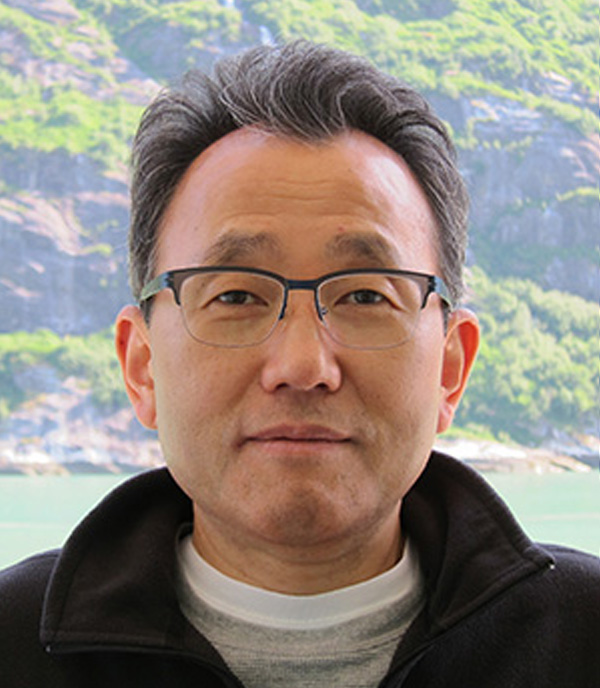
Liberal Arts and Sciences Science Endowed Chair and UIC Distinguished Professor and Head of Department of Chemistry
Presentation Title: Cholesterol-targeting Cancer and Alzheimer Disease Drugs
Bio: Wonhwa Cho is the first LAS Science Endowed Chair, UIC Distinguished Professor and head of chemistry. His research interest lies in the interface of chemistry and biology, with a focus on lipids and lipid-targeting drug development. He revolutionized the lipid research by developing the innovative lipid imaging technology and discovering that lipids, especially cholesterol, drive cancer progression by activating specific cellar proteins by novel mechanisms. His research led to development of a first-in-class lipid-protein interaction inhibitor as a novel cancer drug with unprecedented pharmacological properties. His work has been published in most prestigious journals, including Cell and Nature Chemical Biology. He is continuing to develop a wide-range of novel lipid-targeting drugs for breast cancer, colorectal cancer and Alzheimer’s Disease. He is the first UIC recipient of the prestigious R35 MIRA Award/Grant from the National Institutes of Health. His contribution to the lipid field was recognized with the prestigious Avanti Award in Lipids from the Biophysical Society in 2018. He was elected a Fellow of American Association for the Advancement of Science in 2018.
Abstract: Cholesterol-targeting cancer and Alzheimer’s Disease drugs. Cholesterol is associated with cancer and Alzheimer’s disease progression but the mechanisms underlying these links are not known. Based on innovative lipid imaging and chemical biology techniques, the Cho group discovered that cholesterol enriched in the specific cellular location drives cancer progression and treatment resistance in a cancer cell type-specific manner. Advanced drug discovery effort led to a first-in-class cholesterol-targeting inhibitor for colorectal cancer with no dose-limiting side effect. The same approach has been successfully applied to development of the precision medicines for various subtypes of breast cancer and Alzheimer’s disease.
Barbara Di Eugenio, PhD Heading link
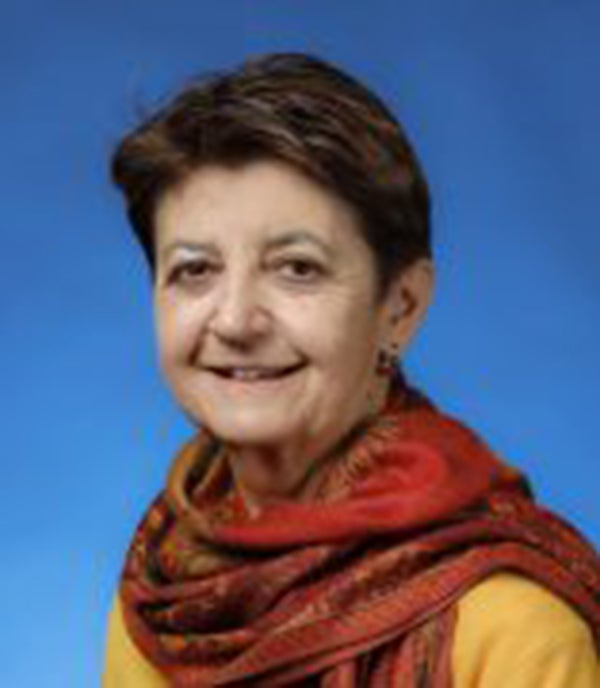
Professor, Director of Graduate Studies, Department of Computer Science
Presentation Title: Engaging the Patient in Healthcare with Natural Language Processing
Bio: Barbara Di Eugenio is a professor and director of graduate studies in the computer science department at the University of Illinois Chicago. There she leads the NLP laboratory. She obtained her PhD in computer science from the University of Pennsylvania (1993). Her research has always focused on Natural Language Processing, grounded in authentic data collection on the one hand, and in user studies on the other. The applications of her work run the gamut from health care to educational technology, from human-robot interaction to data visualization. Di Eugenio is an NSF CAREER awardee (2002); a UIC University Scholar (2018-2020); and a Zenith Award recipient from AWIS, the Association for Women in Science (2022). She was also the recipient of the UIC Award for Excellence in Teaching in 2019. Her research has been supported by NSF, ONR, NIH, Motorola, Yahoo!, Politecnico di Torino, and the Qatar Research Foundation. She is very proud to have graduated 15 PhD and 32 Master’s students.
Abstract: Effective and compassionate communication with patients is becoming central to health care. I will briefly discuss three ongoing projects in this space. The first, MyPHA, aims to provide patients with a clear and understandable summary of their hospital stay, which is informed by doctors’ and nurses’ perspectives, and by the strengths and concerns of the patients themselves. The second, SMART-SMS, models health coaching interactions via text exchanges that encourage patients to adopt specific and realistic physical activity goals. The third, HFChat, envisions an always-on-call conversational assistant for heart failure patients, that they can ask for information about lifestyle issues such as food and exercise.
All our work is characterized by: large interdisciplinary groups of investigators who bring different perspectives to the research; grounding computational models in ecologically valid data, which is small by its own nature; the need for culturally valid interventions, since our UI Health system predominantly serves underprivileged, minority populations.
Watch the recording!
Sam Dorevitch, MD, MPH Heading link
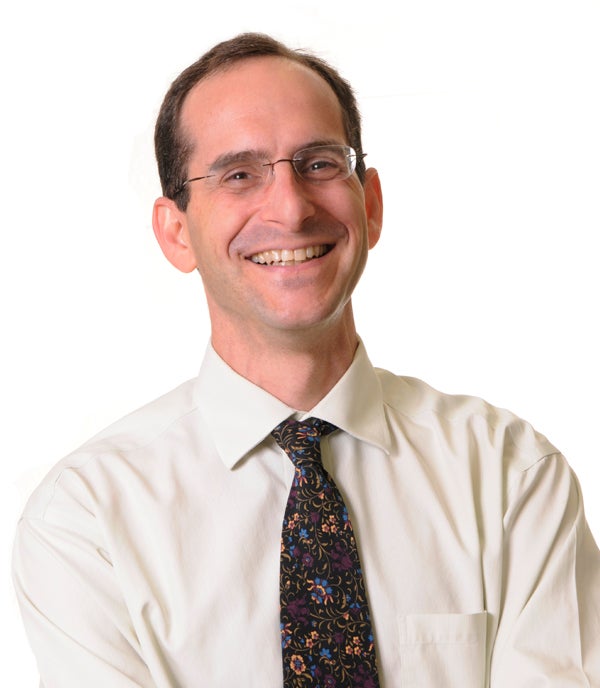
Professor, Environmental and Occupational Health Sciences
Presentation Title: Sola Maji: Sustainably Producing Safe Drinking Water With Local Partners in Kenya
Bio: Sam Dorevitch is a Professor in the Division of Environmental and Occupational Health Sciences of the UIC School of Public Health. He earned his MD degree from the University of Chicago and completed residency training in Emergency Medicine, and received his Masters of Public Health from the UIC School of Public Health. Dr. Dorevitch’s research focuses on water quality and the impact of water quality on health, locally and globally. His work has addressed health impacts of water pollution on the Chicago River, sources of bacteria at Lake Michigan beaches, the measurement of the COVID virus as a method for monitoring the epidemic at the Cook County Jail, as well as the presence lead in drinking water in rural Illinois. He has served on EPA panels, as well as an international group that investigated the legionella outbreak in Flint, Michigan. For the past six years he has conducted innovative interdisciplinary research in Kenya that has brought advanced University of Illinois solar powered technology to Kenya, where it is used by communities to produce safe drinking water.
Professor Dorevitch is the son and grandson of UIC alumni (Pharmacy) and the father of a UIUC graduate.
Abstract: In many low- and middle-income countries, safe drinking water is difficult to obtain. Many families depend on polluted lakes, rivers, or wells for their water. While groundwater is generally safer, water is being withdrawn from aquifers at an unstainable pace. For that reason, disinfecting surface water is one way to ensure adequate water supplies without the risk of cholera and other waterborne infections. Efforts to promote household treatment of water by adding chlorine to water have produced, at best, limited benefits. In high-income countries, ozone is often used to disinfect water, but the process for producing ozone is energy-intensive. New technology developed at UIUC allows ozone to be produced at low-cost using solar power. A multidisciplinary research team working with local partners have deployed this technology in Kenya, producing potable water for hundreds of families without emitting greenhouse gases. This research won first place in an international water innovation and sustainability competition in Dubai earlier this year. Working with local civil engineers, non-governmental organizations, this work is being scaled-up while becoming modular and less costly. Next steps should include studies of health impacts and expansion of the technology more broadly.
Mark Dworkin, MD, MPHTM Heading link
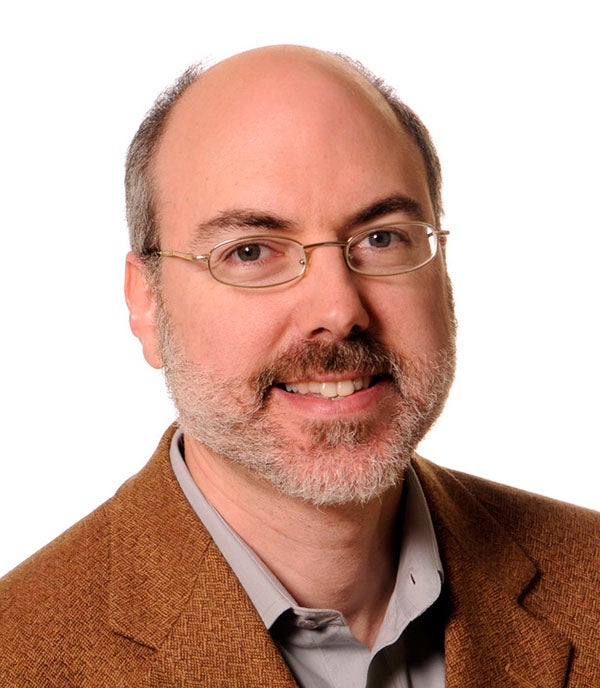
Professor, Epidemiology
Presentation Title: Feasibility, Acceptability, and Efficacy of a Realistic Relational Human Avatar in a Mobile Phone App Designed to Promote Health in Persons Living With HIV: Research Studies in the US and Early Study in India
Bio: Dr. Mark Dworkin is professor of epidemiology in the division of epidemiology and biostatistics. He is an infectious disease physician and public health researcher with a focus on technological interventions that help persons living with HIV with adherence to antiretroviral therapy and retention in care. In the U.S., he has led NIH-funded research to help African American men who have sex with men and in India his research populations have included persons living with HIV with special attention to female sex workers. The technological approaches he has studied include a realistic talking avatar-based mobile phone app and an electronic pill bottle that can notify users in real-time of missed doses.
Abstract: Suppression of viral load in persons living with HIV provides personal and public health benefits including prevention of AIDS and death and substantial reduction of risk of transmission to others. The primary method of suppression of HIV viral load is adherence to antiretroviral therapy. To promote adherence, overcome stigma, enhance health literacy and motivate healthy behavior, a mobile phone app has been developed in a partnership between the UIC School of Public Health and a UIC computer science alumnus at Connecticut College that features a talking realistic relational agent — an avatar. Development was informed by young African American men who have sex with men in Chicago and a pilot study demonstrated high acceptability and preliminary evidence of efficacy. This mobile phone app is now in its final year of an NIH-funded multi-state randomized clinical trial that will determine its efficacy on improving viral load suppression, medication adherence, and retention in care. Additionally, this unique technological approach is being adapted to southern India to explore acceptability and feasibility in persons living with HIV. In partnership with collaborators in India, the app has been modified and translated. and interviews with a range of high priority populations with low literacy have begun including in men who have sex with men and female sex workers. These exploratory data will be included in a future grant application to study this app in a pilot randomized clinical trial.
Alexander Eisenschmidt, PhD Heading link
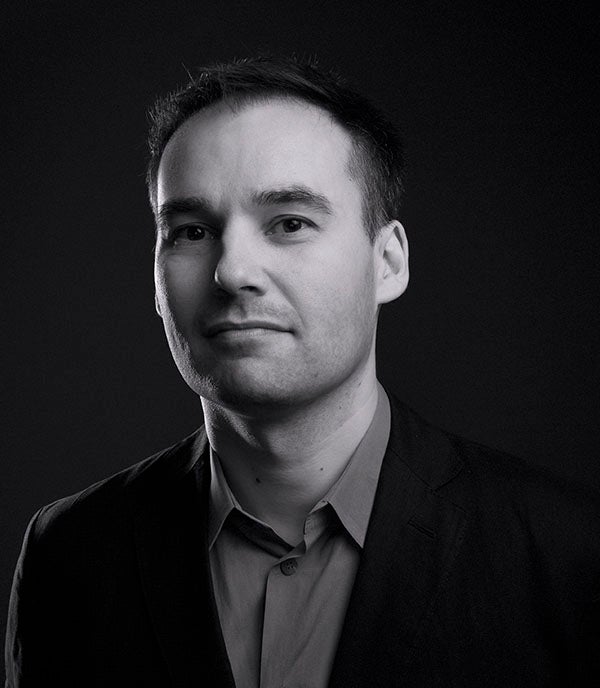
Associate Professor, School of Architecture
Presentation Title: At Home With the Collective: An Architecture for Housing
Bio: Alexander Eisenschmidt is a designer, theorist and associate professor in the University of Illinois Chicago School of Architecture. He is author of “The Good Metropolis,” among other volumes; has curated and exhibited in venues such as the International Architecture Biennale in Venice; and directs the Visionary Cities Project, a research-based platform devoted to the contemporary city and speculations on new forms of architectural urbanism and collective housing. For more information, see www.aeisenschmidt.com
Abstract: While housing could be described as one of the basic forms of architecture and one of its main responsibilities, if not today’s most crucial task, spatial practices have largely ceased to rethink established forms of living and the politics and economies that surround it. Indeed, escaping the pervasive models of profit-based homeownership seems increasingly difficult when dominated by neoliberal market values. This research, therefore, posits a radical shift from house to housing and from the single to the collective. The reintroduction of the term “collective” becomes here a mechanism to shift attention and refocus housing as a community-building, solidarity-building, and city-building activity.
The urgency of the topic manifests in the current housing crisis, which has only been exacerbated by the global pandemic. According to the World Bank, 1.6 billion people will be affected by the shortage in housing by 2025 and the United Nations estimates that today 100 million people are without a home, statistics that are driven by the lack of affordable housing and an exponential rise of housing costs over income. While there are clearly regional differences, we are currently witnessing a global housing emergency. Cities in Africa lack at least 52 million housing units, Asia has one of the fastest growing housing markets, Europe’s rents rose by an average of 14.5% in the first quarter of 2022 alone, and half of all US renters are cost-burdened.
Housing is driven by local forces (from socio-cultural to material resources) and conditioned by global dimensions (from the economy and trade to migration movements). The work, therefore, aims to engage both scales. First, it proposes rethinking established norms of living, models of homeownership, and the formal, programmatic, material, economic and legal parameters of housing. And, second, it generates new knowledge through the strength of shared research, local expertise, and design innovation. We are collaborating with the mayor’s office and a number or other departments, agencies and local community organizations to prepare a report that catalogs ingenuities that can confront the current housing emergency and speak to the potential of collective housing as a productive challenge for architecture. Most importantly, we are contributing to creative public policy interventions and the piloting of new forms of collective living that can address the critical issue of housing insecurity.
Anne George, PhD Heading link
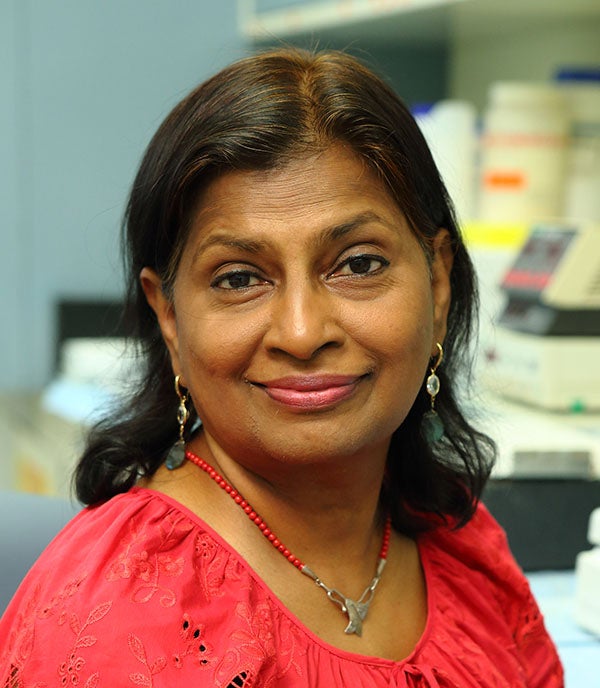
Allan G. Brodie Endowed Professor, Brodie Tooth Development Genetics and Regenerative Medicine Research Laboratory
Presentation Title: Role of Proteins in Biomineralization of Bone and Teeth: Lessons From Nature
Bio: Anne George is the Allan G. Brodie Endowed Professor, Brodie Tooth Development Genetics and Regenerative Medicine Research Laboratory, department of oral biology in the College of Dentistry. She received her postdoctoral training at Northwestern University. She joined the University of Illinois Chicago in 1998. She was recognized as a University Scholar in 2018 and UIC Distinguished Professor in 2022. George has had a long and impressive career in dental research and regenerative science. She is steadfast in her focus on laboratory and translational research and brings to the College of Dentistry important scientific leadership. Dr. George’s research has been continuously NIH funded, accruing greater than $15 million in grant support.
George’s research is highly regarded internationally. Recognition includes a Doctor Honoris Causa (2011) from University René Descartes, Paris; and the 2008 International Association of Dental Research’s Distinguished Scientist Award for basic research in “Pulp Biology and Regeneration” and the IADR Distinguished Scientist Award on “Basic research in Biological Mineralization” in 2020.
Abstract: In nature, living organisms synthesize mineralized tissues and this process of biomineralization is under strict biological control. Formation of calcified tissues such as bone and dentin in vertebrates is a cellular process. Cells secrete several biological macromolecules which can interact among themselves and with the mineral component to form the calcified extracellular matrix (ECM). The ECM constitutes the non-cellular component of tissues and is composed of structural and functional proteins. A common theme in mineralized tissues is the intimate interaction between the proteinaceous organic matrix and the inorganic mineral component. The incorporation of the mineral into the matrix is essential for the hardness and rigidity that enables the skeleton to resist gravitational and mechanical loading, while in dentin the tissue needs to withstand masticatory forces. Soft and viscoelastic protein wrapping the nanosized brittle calcium phosphate crystals leads to the unique mechanical properties that results in making tissues such as bone and dentin strong and tough. Formation of biogenic crystals is of great interest because of their fascinating microstructures and superior mechanical properties.
Unique methods exist in nature for controlling crystal properties and microstructure. It has now become apparent that organic macromolecules with unique functional domains are involved in the hierarchical constructions of inorganic assemblies at different length scales. However, the detailed apatite crystallization process remains obscure, and the molecular recognition mechanisms at the interface between protein and mineral are poorly understood. Several macromolecules orchestrate this event, however, type I collagen and noncollagenous proteins (NCPs) are the key players in vertebrate mineralization. During bone and dentin formation, the key proteins are type I collagen which forms a template for the deposition of mineral ions and several noncollagenous proteins that function in initiating and regulating hydroxyapatite formation. The calcified matrix that is formed is highly organized and it is temporally and hierarchically deposited during development. Disruption of the matrix assembly process can lead to pathological mineralization or demineralization.
Rachel Havrelock, PhD Heading link
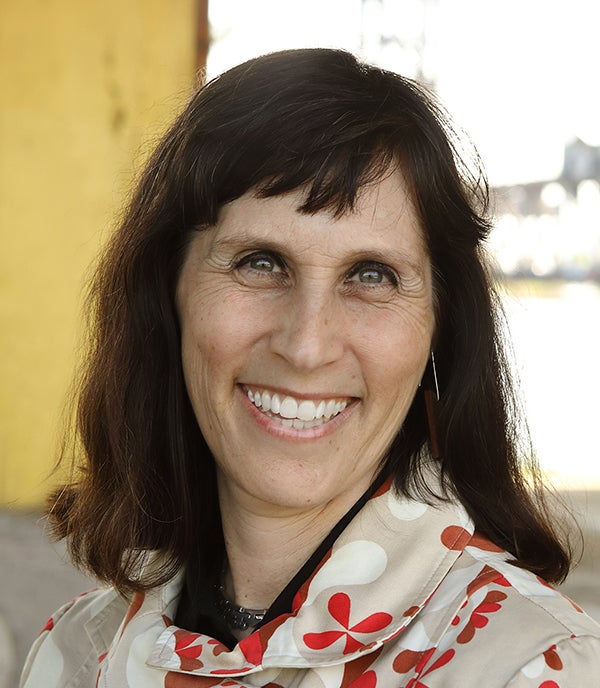
Professor of English
Presentation title: Elevating a New Generation of Climate Change Leaders
Bio: Rachel Havrelock is a professor in the department of English at the University of Illinois Chicago (UIC), where she directs the Freshwater Lab. The Freshwater Lab generates research and policy on transboundary water systems and climate change adaptation; trains a new generation of water leaders; and creates public-facing media like the Freshwater Stories and Backward River digital platforms. Her current research focuses on water recycling in Illinois and innovative water pricing strategies that forefront affordability and accessibility. An active voice in the media, Rachel has published in Foreign Affairs, Huffington Post, Chicago Tribune, The Chicago Reporter, Belt Magazine, the International Joint Commission newsletter and been a return guest on WBEZ, Chicago’s NPR station, and WTTW Chicago.
Abstract: The Freshwater Lab builds community and develops new leadership through a dynamic internship program for UIC students to work on Great Lakes issues, particularly in urban contexts along the southern shore of Lake Michigan. The program links student interest and innovation to the urgent threats facing the Great Lakes and drinking water systems, demonstrating the possibilities for growth and social transformation in our region. The goal is to inspire change along with a new generation to implement it. The Freshwater Lab Internship program, spanning an academic semester and a summer session, offers practical training and vital networking with professionals.
Open to advanced undergraduate and graduate students from all disciplines and colleges, the Freshwater Lab internship focuses on water policy and governance, environmental justice, and the conceptual and infrastructural changes necessary for the Great Lakes region to survive and thrive amidst climate change. The Freshwater Lab trains young, diverse Great Lakes leaders and launches their environmental careers through an individualized internship placement program. In the past four years, about two hundred students have engaged Great Lakes water issues and created actionable, original projects to address them. Close to 80 students have worked as interns at leading environmental agencies and community organizations in the Chicago Metropolitan Area. Current and former students are part of a larger Freshwater Lab cohort of young environmental professionals who regularly attend the Lab’s events and other public programs focused on water. Students come from a wide range of academic disciplines including art, communication, ecology, engineering, English, political science, public policy, and urban planning.
The internship program provides professional and career development skills to students. Agencies and organizations who sponsor Freshwater Lab interns benefit from fresh perspectives, new approaches and constituencies, and the high-caliber work of motivated students. Those benefits are widely distributed in the sense that the leadership program better forms a Great Lakes constituency, which reflects the range of communities in the watershed. Cultivating leaders entails interdisciplinary education, sustained mentorship, and exposure to both pressing issues and innovative solutions. Because the University of Illinois Chicago draws mostly local students, it is the ideal place to elevate a diverse cohort of Great Lakes leaders.
Joe Hoereth, PhD Heading link
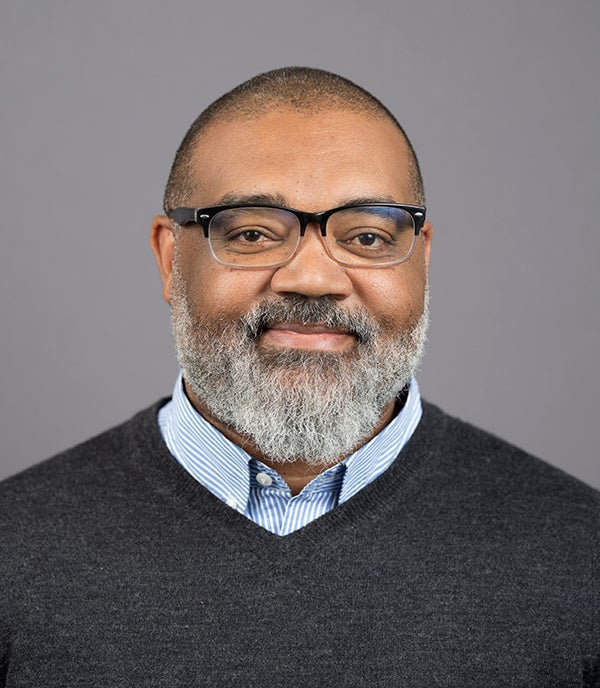
Director, Institute for Policy and Civic Engagement
Presentation Title: The Urban Public Policy Fellows (UPPF) Program — Developing Civically Engaged Leaders
Bio: Joseph Hoereth is director of the Institute for Policy and Civic Engagement in the College of Urban Planning and Policy at the University of Illinois Chicago. Hoereth came to UIC in 2004 as the associate director of the Great Cities Institute, bringing a wide range of experience in community development research and evaluation, having previously worked for university research centers, nonprofit organizations and private consulting firms. He has worked for two private consulting firms, including an urban planning firm specializing in fiscal and economic impact studies for housing developers and a firm conducting research and program evaluation for foundations and nonprofits. He has taught courses as an adjunct faculty in the department of urban planning and the department of public administration. Hoereth holds a BA in economics from the University of California at Berkeley, a master’s, and a PhD in urban planning from Rutgers University.
Abstract: This presentation describes the Urban Public Policy Fellowship program, which offers undergraduates from historically underrepresented backgrounds a nine-month leadership development experience structured as a paid internship. The fellows are placed in an internship with organizations doing policy-relevant work, participate in seminars on policy topics, and produce a high quality research poster on a policy issue of their choice. With alumni who have gone on to be leaders of non-profits, in government, and in wide range of sectors, UPPF is a model program that complements a student’s degree with job-relevant experience and a solid grounding in civic engagement theory and practice.
Niranjan Karnik, MD, PhD Heading link
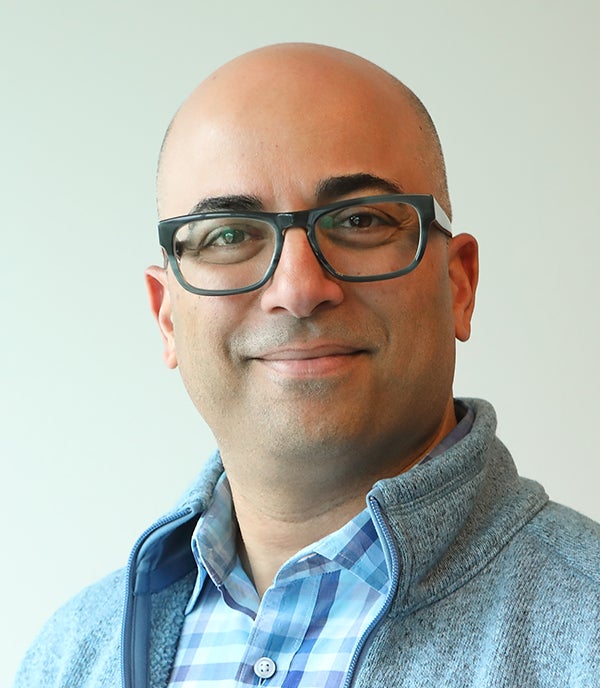
Professor of Psychiatry
Presentation Title: Can Your iPhone Be Your Personal Mental Health Support and Well-being Monitor?
Bio: Niranjan Karnik, a child and adolescent psychiatrist and sociologist, is professor of psychiatry, director of the Institute for Juvenile Research, co-director of the Institute for Research on Addictions, co-director of the CCTS KL2 Career Development Program, and interim director of the Center for Health Equity using Machine Learning and Artificial Intelligence at the University of Illinois Chicago. He serves as director of the Great Lakes Node of the National Drug Abuse Treatment Clinical Trials Network. His research focuses on data science, technology and community-based interventions for vulnerable populations with psychiatric and substance use disorders. In the past, he has worked with refugee children on the Pakistan-Afghan border, street children in India, foster youth in Central Illinois, and incarcerated youth in California. He worked at a youth homeless shelter in San Francisco and is continuing work with youth experiencing homelessness in Chicago. He presently leads grants from the National Institute on Drug Abuse. He is a Distinguished Fellow of the American Psychiatric Association and American Academy of Child and Adolescent Psychiatry.
Abstract: In this SparkTalk, Dr. Karnik will explore the ways that our smartphones are beginning to serve or have the potential to serve as passive data monitors to inform us and our providers about our mood and overall mental health functioning. This is a component of the evolving field of precision medicine and ubiquitous health (uHealth) and will likely further emerge in the context of wearables and other mobile health (mHealth) tools. He will present data from his team’s work with youth experiencing homelessness and also briefly discuss how artificial intelligence might advance our work in this space.
Jerry Krishnan, MD, PhD Heading link
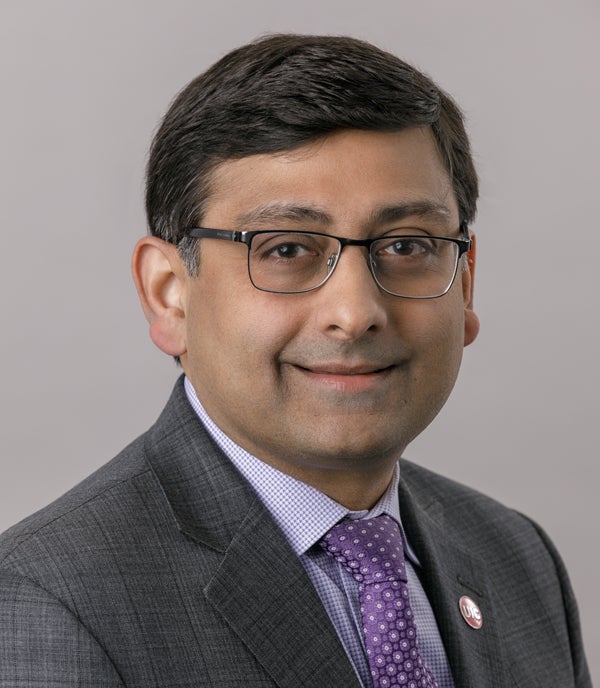
Associate Vice Chancellor for Population Health Sciences, Executive Director of the Institute for Healthcare Delivery Design, and Professor of Medicine and Public Health
Presentation Title: Long COVID Care and Research
Bio: Dr. Jerry Krishnan is the associate vice chancellor for population health sciences, executive director of the Institute for Healthcare Delivery Design, and professor of medicine and public health. His team provides strategic and operational support for the development, implementation and evaluation of enterprise-level care strategies for population health. His expertise includes care models to support hospital home transitions in socially vulnerable populations. Krishnan is also a physician-scientist with expertise in the care of patients with asthma, chronic obstructive pulmonary disease (COPD), COVID-19, and Long COVID. He is the lead investigator of the NIH-funded Illinois research consortium conducting research in Long COVID, which is known as ILLInet. ILLInet focuses on understanding Long COVID in adults and its impact on vulnerable communities in urban and rural areas. Krishnan received his MD with Honors from Baylor College of Medicine and completed clinical training in Internal Medicine and Pulmonary/Critical Care Medicine as well as his PhD in Clinical Investigation at Johns Hopkins University. He also completed the Advanced Management Program at Harvard Business School.
Abstract: As of October 2023, the World Health Organization is reporting that there have been over 750 million cases of COVID-19 and 7 million deaths. There is growing recognition that SARS-CoV-2, the virus that causes COVID-19, can also lead to a chronic illness that is called Long COVID, Post-Acute Sequelae of SARS-CoV-2, or Post-COVID Condition. The U.S. Government’s working definition for Long COVID is as follows: Long COVID is “broadly defined as signs, symptoms, and conditions that continue or develop after initial COVID-19 or SARS-CoV-2 infection. The signs, symptoms, and conditions are present four weeks or more after the initial phase of infection; may be multisystemic; and may present with a relapsing–remitting pattern and progression or worsening over time, with the possibility of severe and life-threatening events even months or years after infection. Long COVID is not one condition. It represents many potentially overlapping entities, likely with different biological causes and different sets of risk factors and outcomes.
The University of Illinois Chicago-led Illinois Research Network (ILLInet) was funded by the National Institutes of Health to become a founding member of the NIH RECOVER Initiative, a national consortium that is studying the epidemiology, pathogenesis, and treatment of Long COVID. ILLInet research partners include community- and faith-based organizations in Chicago and Peoria, in keeping with our strategy to collaborate affected populations and representatives when conducting research. The goal of the RECOVER Initiative is to rapidly improve our understanding of and ability to predict, treat, and prevent Long COVID. The presentation will discuss efforts underway at UIC in support of this research initiative as well as the UI Health Post-COVID Clinic.
Maria Krysan, PhD Heading link
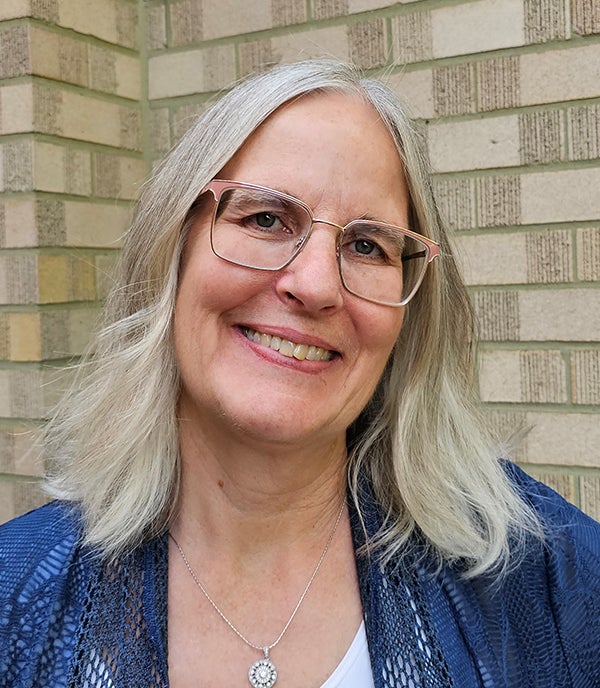
LAS Distinguished Professor of Sociology
Presentation Title: Disrupting the Cycle of Segregation: Folded Map, Don’t Go, and Other Adventures
Bio: Maria Krysan, LAS Distinguished Professor of sociology at UIC, has spent decades teaching, researching and writing about residential segregation and racial attitudes. Her 2017 award-winning book with Kyle Crowder, “Cycle of Segregation,” proposes an innovative framework for understanding the causes of racial residential segregation and has served as a springboard for her growing engaged work, especially that with Tonika Johnson, a Chicago social justice artist and creator of the Folded Map Project. Krysan’s writing has been published in conventional academic outlets as well as nonacademic publications (e.g., The Hill Reporter, Crain’s Chicago Business, Visible Magazine, Block Club Chicago) and she has been interviewed and/or cited in the media (e.g., WBEZ, Chicago Tribune, Chicago Sun Times, CityLab, CNN, WGN, TeenVogue, Vox.Com, Washington Post, New York Times). She frequently presents her work outside of academia, sharing her expertise with, and learning from, her engagement with advocates, mayors, legislators, housing agencies, real estate agents, researchers, K-12/college students, foundation staff, lawyers, library patrons, and so on.
Abstract: In the “Cycle of Segregation,” my co-author Kyle Crowder and I offer an innovative framework to explain the persistent pattern of racial residential segregation that has plagued U.S. cities like Chicago for decades. Using the housing search process as a lens, we unpack how economics, preferences, discrimination, social networks, lived experiences, and the media—laid down upon the foundation of segregation cemented by decades of racist housing policies and practices—has resulted in a self-perpetuating system that translates into the deeply ingrained racial inequities that we see in Chicago today. In this talk, I provide the overview of our argument and then describe the ways in which I have sought to extend the impact of my research outside the halls of academia through my partnership with Chicago-based social justice artist Tonika Lewis Johnson, creator of the renowned Folded Map Project.
As Johnson explains, “The Folded Map Project visually connects residents living at corresponding addresses on the North and South Sides of Chicago (e.g., the residents at 6720 S. Ashland and 6720 N. Ashland are Map Twins). I investigate what urban segregation looks like and how it impacts Chicago residents. … The project invites audiences to open a dialogue and question how we are all impacted by social, racial, and institutional conditions that segregate the city. … I want to challenge everyone to think about how change may be possible and to contribute to a solution.”
In this talk, I share three of our joint efforts, which are extensions of Johnson’s Folded Map project.
First, the Folded Map Action Kit, which invites Chicagoans to reflect on how they came to live in their neighborhood, visit a twin neighborhood—one that is racially and economically different; reflect on the neighborhoods’ similarities and differences; and ultimately see that by visiting a ‘twin’ neighborhood, they are pushing back against the self-perpetuating segregative forces of our lived experiences, social networks, and the media and disrupting segregation.
Second, “Don’t Go,” first published in Block Club Chicago, and now a book project, is based on 27 interviews with everyday people conducted from April-December of 2020. We seek to reveal the influence of the subtle and overt “don’t go” messages directed towards Black and brown neighborhoods. Through stories and photographs, we point to the ways people disrupt these messages hoping to provide an optimistic conversation starter (and teaching tool) about segregation that lays out a pathway to empathy, connection, and action.
Third, the Folded Map curriculum, professionally designed by JnJ Creative, is comprised of a student and teacher guide targeting middle-school grades and above. It centers students and educators’ personal experiences, building out from them to explore the larger social structures that cause segregation, understand how it impacts their lives, and ultimately guide students to devise an action plan to disrupt it.
Mark Lockwood, PhD, MSN, RN Heading link
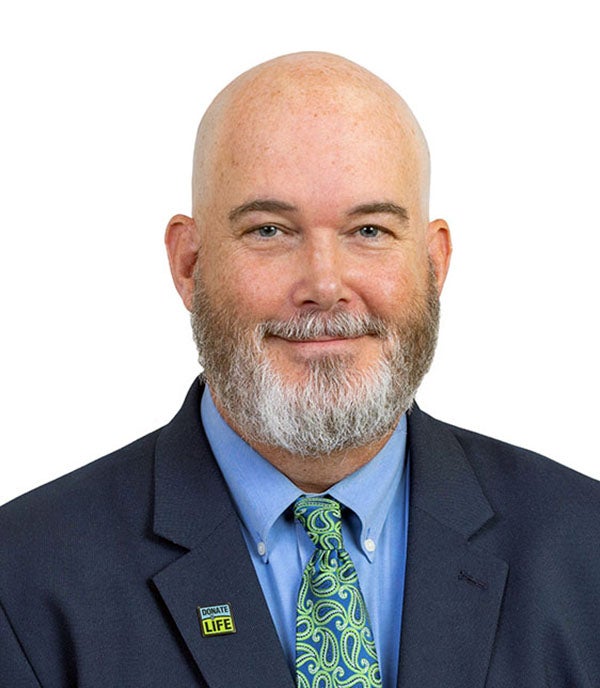
Associate Professor, College of Nursing
Presentation Title: The Role of the Gut Microbiota in Pain Interference Before and After Kidney Transplantation: A Pilot Study.
Bio: Dr. Mark Lockwood is an associate professor at the University of Illinois Chicago College of Nursing in the department of biobehavioral health sciences. He received his Doctor of Philosophy from Oregon Health and Science University School of Nursing in 2016. Lockwood’s research program focuses on the relationship between the oral and gut microbiomes and psychoneurological symptoms in patients with chronic kidney disease. In 2019 he received a Mentored Patient-Oriented Research Career Development Award (K23) from the National Institute of Nursing Research to study microbiome-mediated effects of transplantation of self-reported symptom burden. In 2020 he received a training supplement from the National Institute of Diabetes and Digestive and Kidney Diseases as part of the The Helping to End Addiction Long-termSM Initiative, or NIH HEAL InitiativeSM. Dr. Lockwood is the PI of an R01 funded by the NIDDK, investigating the complex temporal relationships between gut microbiome features, fecal and serum metabolites, kidney transplant factors and pain interference among living donor kidney transplant recipients.
Abstract:
Purpose: Characterize associations between gut microbiome features and pain interference before and after kidney transplantation.
Design: Longitudinal, repeated measures study of 19 living-donor kidney transplant recipients, collecting fecal specimens and pain interference data pretransplant and 3 months posttransplant.
Methods: We assessed fecal microbial community structure with shotgun metagenomic sequencing; we used pain interference scores derived from the Patient-Reported Outcomes Measurement Information System-57.
Results: We measured a reduction in the Shannon diversity index in both groups after transplantation but observed no significant differences between groups at either time point. We did observe significant differences in fecal microbial Bray-Curtis similarity index among those reporting pain interference pretransplant versus no pain interference at 3-months posttransplant (R = .306, p = .022), and between pain interference groups posttransplant (R = .249, p = .041). Pairwise models showed significant differences between groups posttransplant in relative abundances of several taxa, including a 5-fold reduction in Akkermansia among those with pain interference and a higher relative abundance of taxa associated with chronic inflammation in those with pain interference posttransplant. Functional gene analysis identified two features that were significantly enriched in those with pain interference, including a peptide transport system gene.
Conclusion: Gut microbiota community structure differs between groups with and without pain interference at 3 months after kidney transplantation. Several taxa involved in intestinal barrier integrity and chronic inflammation were associated with posttransplant pain.
Morgan Lord, MSJ Heading link
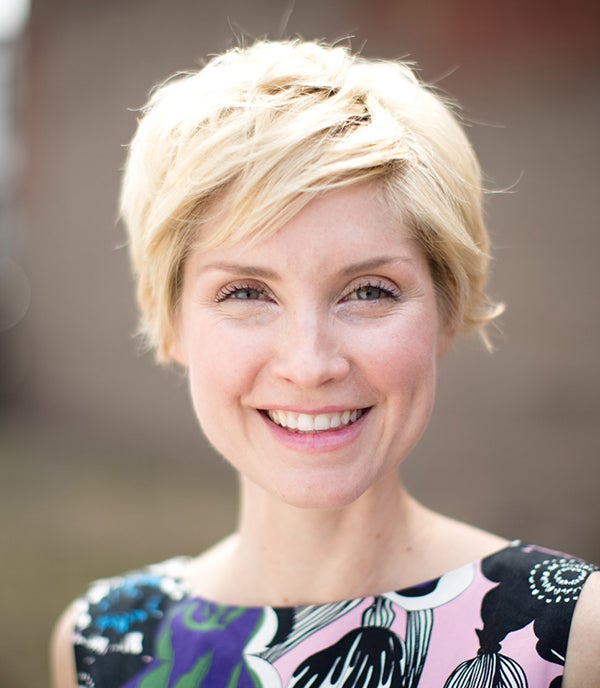
Play Enthusiast, Lecturer at the Institute for Leadership Excellence and Development, UIC Business
Presentation Title: The Impact of Improvisational Play in the Classroom
Bio: Morgan Lord (she/her/hers), MSJ, is a lecturer at the Institute for Leadership Excellence and Development at UIC Business. She is a Chicago-based teacher, improviser and writer. She has written for numerous magazines and received her master’s degree from Northwestern University’s Medill School of Journalism. She’s studied sketch, comedy and the art of improv for the past two decades, and is interested in the intersection between play and inclusion and belonging. She is currently in the Inclusive Education Scholar’s Certificate Program, and has received her Diversity, Equity and Inclusions in the Workplace Certificate from the University of South Florida MUMA College of Business, and completed the Diversity without Division course taught by Irshad Manji, author of Don’t Label Me. She works with business students to help them learn to connect with one another through gameplay, to openly lead, to improve their communication skills and confidence, and hopefully, one day, be able to bring their full selves to the workplace.
Abstract: UIC’s College of Business Student Professional Development Program incorporates improv throughout its five courses and as a way to help students connect, find and share their voices, and advocate and promote themselves in the workplace. Whether the course is focused on interview skills, professional presence and storytelling, leadership or civic engagement — improv is woven through as an experiential method of teaching. This brief talk will hit upon the birthplace of improv (hint, it’s right on campus), the new findings that bolster the use of improvisation with students (including a reduction in social anxiety, generalized anxiety, and depression, and an increase in self-esteem, flexibility, fluency, and originality), and some play as well.
Alexander Mankin, PhD Heading link
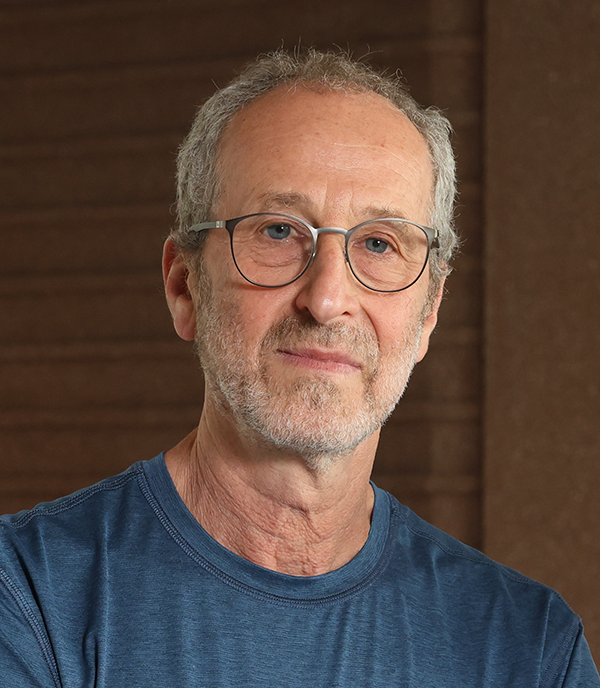
Professor of Pharmaceutical Sciences, Distinguished UIC Professor, and Neyfakh Collegiate Professor
Presentation Title: Antimicrobial Peptides from Honeybees and Fruit Flies Kill Pathogenic Bacteria Through a Uniquely Peculiar Mechanism
Bio: Alexander Mankin is a professor of pharmaceutical sciences, Distinguished UIC Professor, and Neyfakh Collegiate Professor. Mankin received his Doctor of Philosophy and Doctor of Sciences degrees from the Lomonosov Moscow State University, and he joined Center for Pharmaceutical Biotechnology of the UIC College of Pharmacy in 1993 as an assistant professor.
The research of the lab, which Mankin co-runs with Research Professor Nora Vázquez-Laslop, focuses on the ribosome, the molecular machine that makes all cellular proteins. The interests of the lab expand from origin and function of the ribosome to the mechanisms of action of antibiotics that inhibit protein synthesis. The findings of the lab have provided critical insights into the action of antibiotics, those that have been used for decades as well as those discovered only recently. They have also revealed how bacteria evade antibiotics and illuminated new ways for combating antibiotic resistance. The results of the investigations have been published in prestigious scientific journals such as Nature and Cell, and have provided bases for several patent applications.
Abstract: The ribosome, the most complex molecular machine in the bacterial cell, is responsible for making all the cellular proteins. Being critical for bacterial cell growth, the ribosome is one of the best targets for antibiotics that help us combat bacterial infections. The dangerously rapid spread of multidrug resistant bacterial pathogens urges the search for new antibiotics, especially those with novel properties and mechanisms of action. The Mankin/Vázquez-Laslop lab at the Department of Pharmaceutical Sciences and the Center for Biomolecular Sciences (College of Pharmacy, UIC), has discovered that antimicrobial peptides produced by honeybees and fruit flies kill bacteria by binding to the ribosome and stopping protein synthesis in an unprecedented way. While most of the known antibiotics either bar the ribosome from starting protein synthesis or arrest it when it is already making a protein, the bee and fly antibacterial peptides stop the ribosome on its tracks at the very last stage of protein production. Like jamming the exit gate of the car production factory, arresting only few ribosomes at this last stage brings to a halt the entire protein synthesis assembly line, leading to rapid bacterial cell death. Antibacterial peptides with similar but distinct features are produced by many other insects, and likely other animal species. They can be exploited for developing new medicines that could target dangerous pathogenic bacteria.
Melissa Martin, PhD Heading link
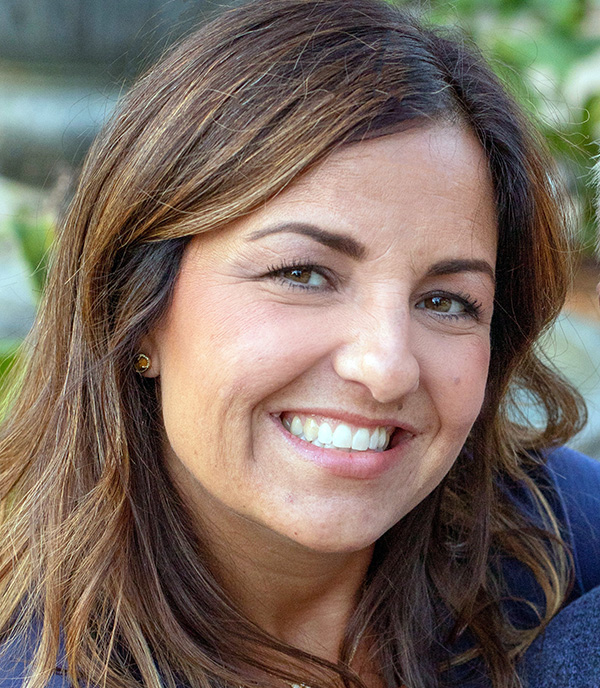
Michael B. Mikhail Associate Professor of Accounting and Interim Department Head
Presentation Title: Innovative Research in Management Accounting: Control Systems and Contracting
Bio: Melissa Martin is the Michael B. Mikhail Associate Professor of Accounting and interim department head. She has been at UIC since 2015 following positions at Rice University and Arizona State University. Her PhD is from the University of Southern California and she has both a master’s degree (Finance) and undergraduate degree (Accounting) from Texas A&M University. Before starting her academic career, she worked for Deloitte.
Her research focuses management control systems broadly and emphasizes incentives and compensation. She conducts field research working with an array of firms from small local to large multi-national to answer research questions relevant to both research and practice. Her research has been published in top journals in both the accounting and management fields including: Academy of Management Journal, Accounting, Organizations, Society, Contemporary Accounting Research, Journal of Management Accounting Research, Journal of Applied Psychology, Review of Accounting Studies, among others. She serves as an editor at the Journal of Management Control, an associate editor at the European Accounting Review, Journal of Management Accounting Research, and Management Acct.
Abstract: Management accounting systems have long been used to direct organizations toward desired outcomes. While these systems have always relied on data to inform decision-making, the explosion of data available from both internal and external sources provides incredible opportunities for the management accountant. Here we look at how that data, and related data analysis techniques, allows us to better understand the problems managers face and the solutions accounting information can provide. We look broadly at data sources and specifically at applications of this innovative data. I provide a short synopsis of one study using innovative data to answer management accounting questions. I discuss how taxi cab data in New York City can help us to understand how managers might influence shareholder voting on compensation contracts.
Branden McLeod, PhD, MSW Heading link
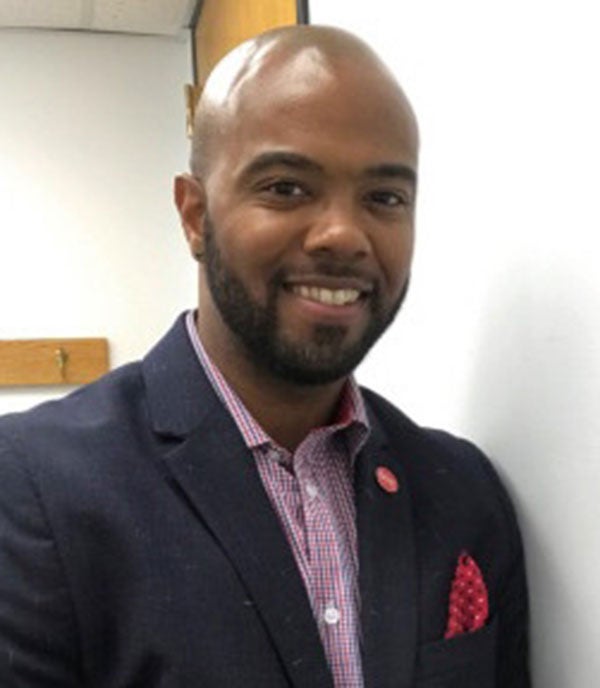
Associate Professor, Jane Addams College of Social Work
Presentation Title: How Social Policies and Systems Shape Fathers’ Involvement
Bio: Branden A. McLeod joined Jane Addams College of Social Work at the University of Illinois Chicago in August 2016, where he currently serves as an associate professor. Branden teaches social welfare policy and research. Branden’s research examines how social policies and systems shape Black men’s well-being and their relationships with their families, focusing on how these systems shape their roles as fathers. Given the overrepresentation of Black males within the criminal legal system and its impact on their families, he dedicates his research to understanding their experiences, outcomes, and solutions. Before joining UIC, Branden held policy advocacy positions at the Child Welfare League of America, Maryland Center for Economic Policy, and University of Maryland School of Social Work. Branden holds a Ph.D. in Social Work from Morgan State University, an M.S.W. degree from the University of Maryland, Baltimore, and a B.S. in Human Services from Lincoln University in Pennsylvania.
Abstract: Most fatherhood research defines father involvement through fathers’ 1) engagement, 2) availability, and 3) responsibility towards their children and family (Lamb, Pleck, Charnov, & Levine, 1985). However, social policies and social systems often affect fathers’ well-being and relationships with their families, especially among Black fathers. Given the ubiquity of the criminal and legal systems in communities of color, much of my research unpacks how these systems and policies potentially attenuate fathers’ roles and explores factors that mitigate, sustain, and strengthen paternal involvement and family relationships. This UIC SparkTalk provides two studies to exemplify my research and introduces a new fatherhood lab- Lab for Empowerment and Advancement of Dad-Drive Research (LEADR), within the Jane Addams College of Social Work.
Robin Mermelstein, PhD Heading link
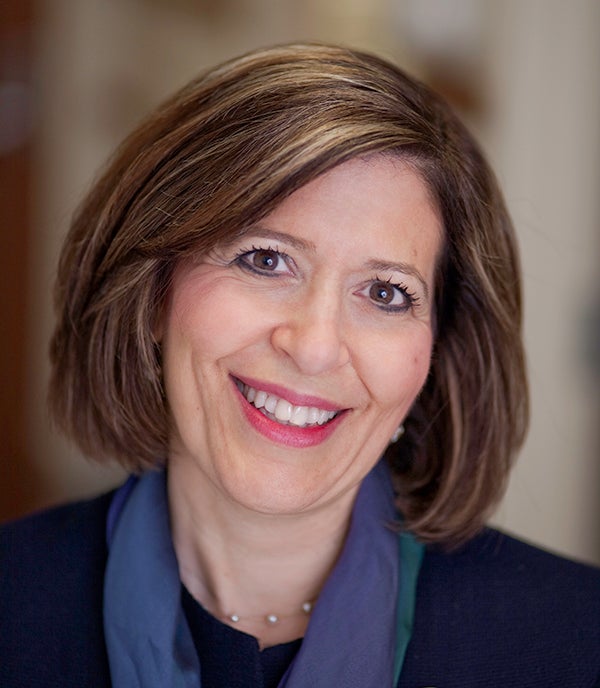
Distinguished Professor of Liberal Arts and Sciences, Psychology Department; Director of the Institute for Health Research and Policy
Presentation Title: Center for Clinical and Translational Science (CCTS)
Bio: Robin Mermelstein, PhD, is Distinguished Professor of Liberal Arts and Sciences, psychology department; director of the Institute for Health Research and Policy at the University of Illinois Chicago; and co-director of UIC’s Center for Clinical and Translational Science. Mermelstein’s research ranges from basic mechanisms of health-related behaviors and disease to clinical research, population health and dissemination. Her research has been continuously supported by the NIH since 1987, with a primary focus on understanding and reducing health risk behaviors in vulnerable populations. She is known for her pioneering work in advanced methods for real-time data capture, especially with adolescents and young adults. Much of her career has focused on leading cross-institutional transdisciplinary research efforts funded by the NIH and other foundations. She is a former chair of FDA’s Tobacco Product Scientific Advisory Committee. She has been acknowledged for her scientific accomplishments by several research societies, including named a Fellow of the Association of Psychological Science, the Society of Behavioral Medicine, and the Society for Research on Nicotine and Tobacco.
Abstract: The University of Illinois Chicago Center for Clinical and Translational Science seeks to catalyze translational research, locally and nationally, as part of a national network to improve individual and population health. Since our initial funding by the NIH in 2009, the CCTS has been a catalyst for mobilizing institutional support and resources to enhance clinical translational research and expand multidisciplinary training programs to increase workforce diversity and promote team science. The overarching goal of the CCTS is to bring scientific breakthroughs with health implications into the world faster, especially to improve the health of marginalized and minoritized communities who have often dealt with heightened risks from social determinants of health. Our high-quality multidisciplinary clinical and translational research, spanning T1-T4 and paired with strengths in community engagement and implementation science and appreciation for the social determinants of health, help to accelerate discoveries into practice and policy. We achieve our objectives through the following global specific aims: 1) Develop a skillful and diverse translational workforce to conduct multidisciplinary team science and advance translation of discoveries; 2) Engage a broad range of stakeholders in clinical translational research, including patients, community leaders, health care providers and clinicians, industry and policy makers; and further support collaboration among the CTSA hubs; 3) Integrate, support, and accelerate clinical translational research across the full translational spectrum with multiple disciplines and with diverse populations across the lifespan; 4) Promote advances in study and development of methods and processes of conducting translational science that will enable advances in translation; and 5) Support the use and advance of innovative informatics solutions to advance translational research and to help train the CTSA workforce.
John Monaghan, PhD Heading link
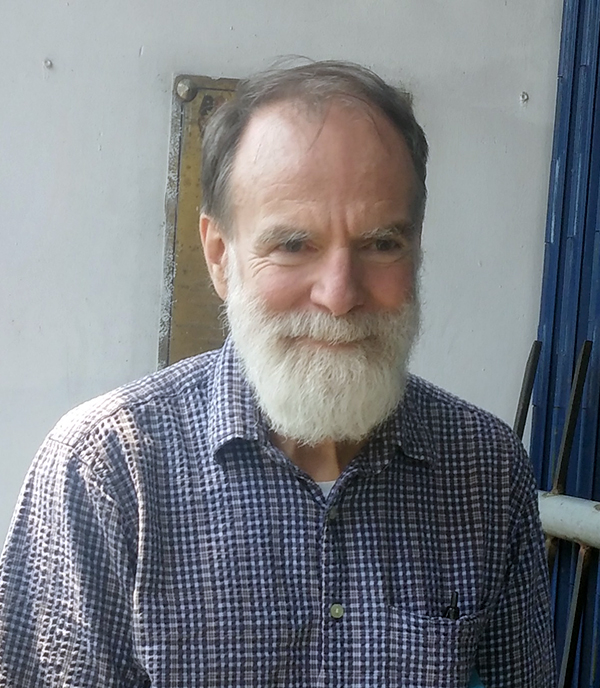
Professor of Anthropology
Presentation Title: The Center for the Recovery and Identification of the Missing
Bio: John Monaghan specializes in ethnohistory, the study of the indigenous people of Mexico, and the study of religion. Before coming to UIC, Monaghan taught at Vanderbilt University and received a PhD at the University of Pennsylvania.
Abstract: The Center for the Research and Recovery of the Missing is a federally funded research unit recently approved by the IBHE. Its focus is on the recovery of solders who are Missing in Action, on developing tools to aid in search and rescue, and in providing technical support to investigations of human rights investigation. It is interdisciplinary, involving UIC students and faculty from engineering and history, anthropology and local researchers based in the Pacific, Southeast Asia and Europe.
Daniel Morales-Doyle, PhD Heading link
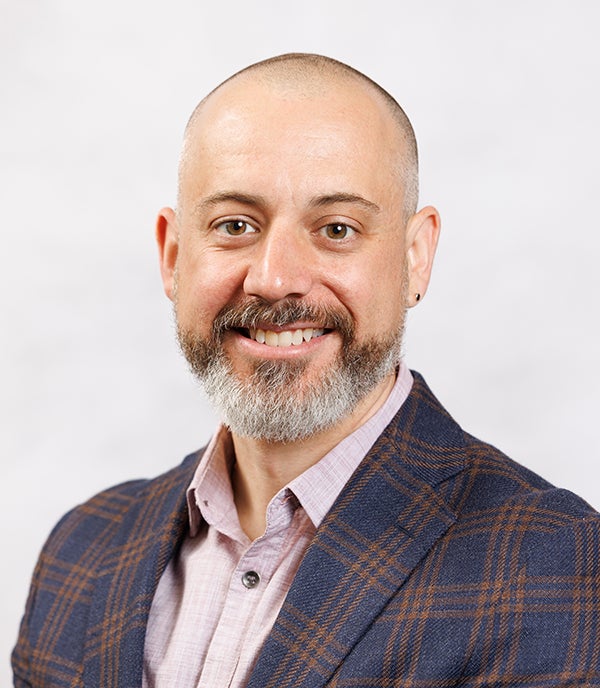
Associate Professor of Science Education and coordinator of the licensure strand of the MEd Science Education program
Presentation Title: Youth Participatory Science to Address Environmental Racism
Bio: Daniel Morales-Doyle is an associate professor of science education and coordinator of the licensure strand of the MEd Science Education program. His research examines the potential for science education to act as a catalyst for alternative futures. Specifically, Morales-Doyle’s work focuses on the sociopolitical dimensions of science curriculum, teaching, and teacher education. He was a high school teacher in the Chicago Public Schools for more than a decade before coming to UIC.
Abstract: In an era of climate change, pandemic, and protest, there is increasing recognition of the need for education to address scientific reasoning and civic participation in combined ways. Youth Participatory Science builds on components of Youth Participatory Action Research and Citizen Science to engage students in authentic, community-based projects at the intersection of science and social justice. An NSF-funded project at UIC investigates the collaborative work of teachers, scientists, community organizers, and youth to support YPS projects in high school classrooms in the Chicago Public Schools that address environmental racism. This SparkTalk provides a brief overview of some of these projects and some of our findings about the teacher professional learning that supports this kind of science education.
Naoko Muramatsu, PhD Heading link
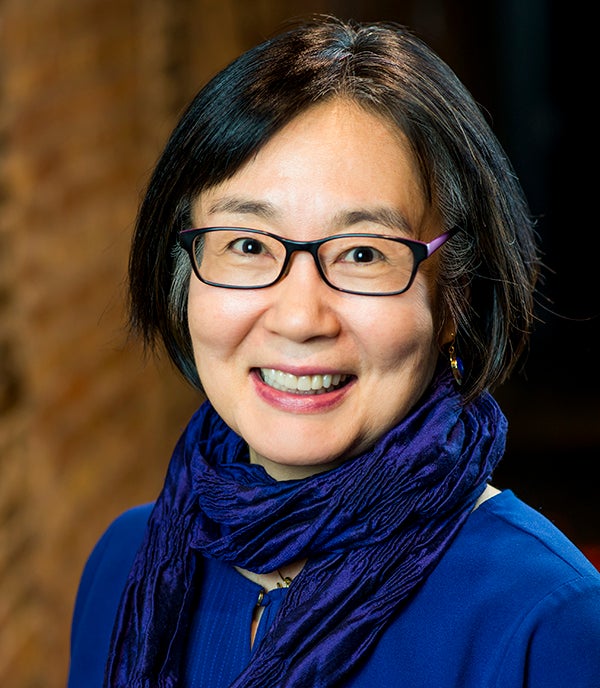
Professor of Community Health Sciences at the School of Public Health and Co-Director of the Center for Health Equity in Cognitive Aging (CHECA)
Presentation Title: Center for Health Equity in Cognitive Aging (CHECA): Making the Invisible Visible
Bio: Naoko Muramatsu is professor of community health sciences at the School of Public Health and co-director of the Center for Health Equity in Cognitive Aging at UIC. As a UIC faculty member of 28 years, she has investigated aging and health in individual, social and health care contexts. Muramatsu aims to realize the full potential of diverse populations aging with or into physical or cognitive disabilities locally, nationally and globally. She is passionate about improving healthcare access, optimizing the quality of life in aging, and advancing health equity in care and at work. Currently, as a principal investigator of community-based clinical trials of in-home physical activity programs funded by the National Institute on Aging of NIH, Muramatsu and her team collaborate closely with home care providers and stakeholders as well as with researchers with various disciplinary backgrounds. Trained in health services research, sociology (demography and organizational studies), and survey methodology, Muramatsu leads initiatives to continuously improve research and mentoring infrastructure at UIC and beyond. She is a fellow of the Gerontological Society of America.
Abstract: The Center for Health Equity in Cognitive Aging (CHECA), a new Alzheimer’s-related Resource Center for Minority Aging Research (RCMAR) at the University of Illinois Chicago, will establish research and mentoring infrastructure for early career faculty from diverse backgrounds, including those from underrepresented groups. This SparkTalk will introduce CHECA, invite the UIC community to CHECA opportunities, and argue for making what is often invisible visible (e.g., aging and cognitive changes, dementia caregiving, family caregivers and care workers, diversity within and across groups, assumptions that may mask our common lived experiences). The thematic focus of CHECA is behavioral and social pathways to Alzheimer’s Disease and Alzheimer’s Disease Related Dementias (AD/ADRD) in the context of dementia care and caregiving. Behavioral and social pathways to AD/ADRD involve multiple levels, from biobehavioral and psychological factors to social structures (e.g., health systems, social norms). The team-based research community will support Scientists to conduct pilot studies. CHECA will support research that (1) advances our understanding of environmental, sociocultural, and behavioral contributors of inequities in AD/ADRD; (2) develops or tests health-promoting interventions or resources (e.g., physical activity programs, technologies, social support from communities or healthcare providers); and (3) cross-fertilizes population science and health promotion approaches to address inequities in adults aging with or at risk for AD/ADRD. CHECA will promote new equity-focused ADRD research at UIC by building behavioral and social research infrastructure (Aim 1), diversifying the AD/ADRD research workforce through mentorship and training for early-career Scientists (Aim 2), and supporting pilot research (Aim 3). CHECA will center diverse perspectives, intra-group variations, and an intersectionality lens across overlapping identities (e.g., race, ethnicity, gender and sexual identity, class, disability). CHECA consists of the Leadership and Administrative Core, co-led by CHECA co-directors, Drs Muramatsu and Bhatt; the Research Education Component, co-led by Drs. Ajilore and Shaw; the Analysis Core, led by Dr. Berbaum, and the Community Liaison Recruitment Core, co-led by Drs. Marquez and Mitchell, and Senior Collaborators (Drs. Boyd and Hughes). Advancing equity in health, work, and care for those who are aging with, or at risk for, physical or cognitive disabilities is important for all of us—we are all aging with or at risk for, physical or cognitive disabilities. As a federally designated Minority Serving Institution, Asian American and Native American Pacific Islander-Serving Institution, and Hispanic-Serving Institution, UIC provides a fertile ground for a new AD/ADRD RCMAR that joins population science and health promotion research to better understand and address ADRD-related health inequities.
Acknowledgment: CHECA is supported by the National Institute on Aging of the National Institutes of Health under Award Number P30AG083255. CHECA is managed by the UIC campus-wide Institute for Health Research and Policy, which is administered through the UIC School of Public Health. We greatly appreciate the contributions of Year 1 CHECA scientists (Drs. Jennifer Kwok, Kelechi Ibe-Lamberts, and Dalmina Arias), CHECA Program Faculty and staff, UIC leaders and units, and community/research partners who supported CHECA’s grant application.
Natalie Parde, PhD Heading link
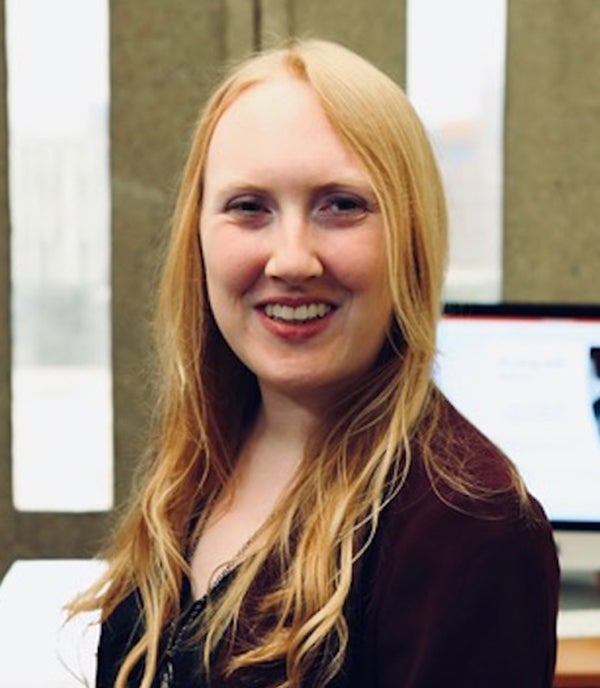
Assistant Professor in the Department of Computer Science
Presentation Title: Sparking New Insights for Assessing Cognitive Health via Spoken Language
Bio: Natalie Parde is an assistant professor in the computer science department at the University of Illinois Chicago, where she also co-directs UIC’s Natural Language Processing Laboratory. Her research interests are in natural language processing, with emphases in health care applications, interactive systems, multimodality and creative language. Her research has been funded by the National Science Foundation, the National Institutes of Health, the Office Ergonomics Research Committee and several university seed funding programs. She serves on the program committees of the Conference on Empirical Methods in Natural Language Processing, the Association for Computational Linguistics and the North American Chapter of the ACL, among other conferences and workshops.
Abstract: Natural language processing can be leveraged to address challenging problems in many domains, including the healthcare sector. In this talk I’ll introduce an intriguing healthcare task that my research team has recently investigated: predicting and assessing cognitive health status via spoken language analysis. Our work has examined classifying individuals into dementia and control groups, as well as predicting fine-grained cognitive health scores along a rigorously validated continuum, all based on transcribed interactions during structured and freeform tasks. We have recently also begun to explore associations between linguistic features and cerebrospinal and blood plasma biomarkers of Alzheimer’s disease, offering potential to extend our work to even earlier-stage dementia detection. Our findings are promising, but also suggest remaining challenges for this complex interdisciplinary task.
Heather Prendergast, MD, MS, MHA, MBA Heading link
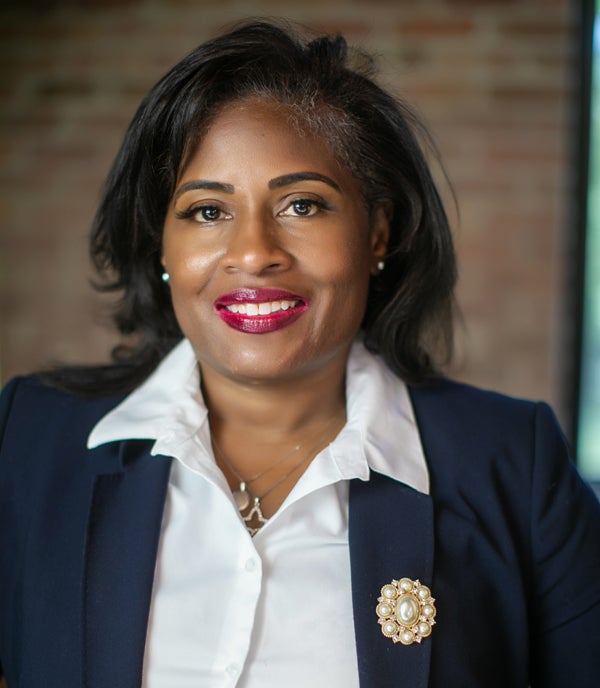
Associate Dean Clinical Affairs, Executive Director of UI Physicians Group
Presentation Title: Transforming Health through the Lens of Health Equity
Bio: Dr. Heather Prendergast is a physician-scientist and leader recognized for developing high quality medical programs and creating strategic alliances while fostering positive hospital, physician and community relationships. She has successfully increased engagement through effective retention strategies that focus on developing and mentoring staff, faculty and students.
As a physician-scientist Prendergast’s passion and focus have been on minority cardiovascular health, particularly for individuals seeking care within the emergency department, together with community engagement.
As a physician-leader, Prendergast led the efforts to establish the first off-site University of Illinois Multispecialty Ambulatory Clinic (2020). She also spearheaded the submission to the Illinois Department of Health and Family Services (HFS) for the Inaugural Healthcare Transformation Initiatives Collaborative on behalf of the University of Illinois Physicians Group, with a subsequent award of $17.2 million dollars. This award established the 55th and Pulaski Healthcare Collaborative, the 2nd off-site University of Illinois Multispecialty Ambulatory Clinic (2022).
Abstract: Over the past 3 years, UI Health Hospital and the UIC College of Medicine has participated in a novel Health Equity Pilot program aimed at reducing the health disparities disproportionally experienced by communities of color leading to poor health outcomes specifically focused on COVID-19, hypertension, diabetes and cancer, among others. In addition, through innovation and collaboration, the Health Equity Pilot program expands efforts to improve diversity among healthcare providers. We present highlights of the ongoing initiatives and impact across COVID-19, hypertension, diabetes and cancer screenings.
Jane Rhodes, PhD Heading link
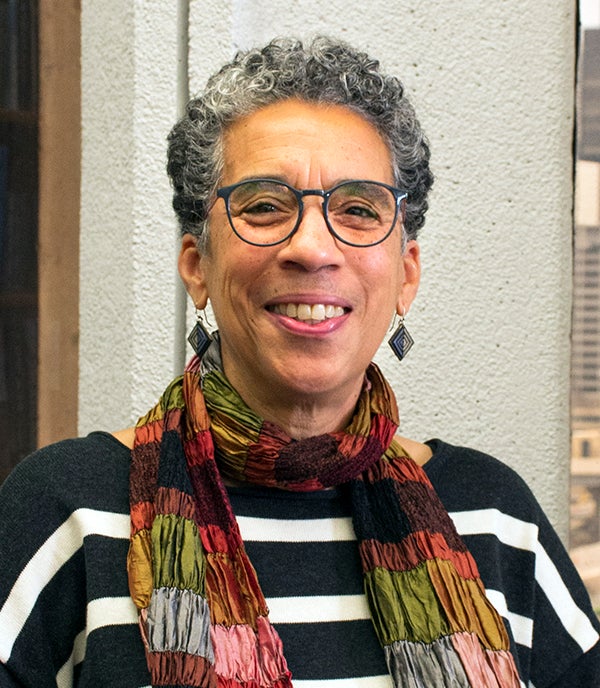
Professor of Black Studies and Associate Dean of Liberal Arts and Sciences
Presentation Title: From Racial Trauma to a Life of Healing: The Journey of a Black American Expatriate
Bio: Jane Rhodes is professor of Black studies and associate dean for faculty research and programs in humanities, social science and interdisciplinary studies; diversity, equity and inclusion; and community engagement. She earned a doctorate from the University of North Carolina at Chapel Hill. At UIC Rhodes served as head of the department of Black studies for six years. Rhodes’ research interests include the history of the Black press, media representations of Black social movements, and African American women’s history and culture. She has published two monographs, “Mary Ann Shadd Cary: The Black Press and Protest in the Nineteenth Century” and “Framing the Black Panthers: The Spectacular Rise of a Black Power Icon” (both in a second editions) as well as numerous articles, chapters and reports. Rhodes has held several fellowships including postdocs from the Ford Foundation and the University of California, a residency at the Radcliffe Institute for Advanced Study, and visiting fellowships at the Universities of Cambridge, Bristol and London, all in the UK.
Abstract: In the 1950s, a little-known Black American originally from Mississippi became the first Black psychoanalyst in Britain. Marie Battle Singer was born to a family of educators in the first decade of the twentieth century. She and her relations endured racial terror and hostility until they fled North as part of the Great Migration. Singer left America in the aftermath of World War II, never to return. Arriving in England in 1950, she joined the legion of Black American expatriates who settled in Europe in search of greater freedom and opportunity. Unlike many of the renowned expats like James Baldwin and Josephine Baker, Singer’s career aspirations were not in the arts or entertainment. She trained with Anna Freud to become a psychotherapist with a focus on childhood and adolescent trauma. Singer navigated Britain’s fraught racial climate during a period of anti-Black and anti-immigrant strife, building a wide-ranging career in the world of psychoanalysis.
Carrie Sandahl, PhD Heading link
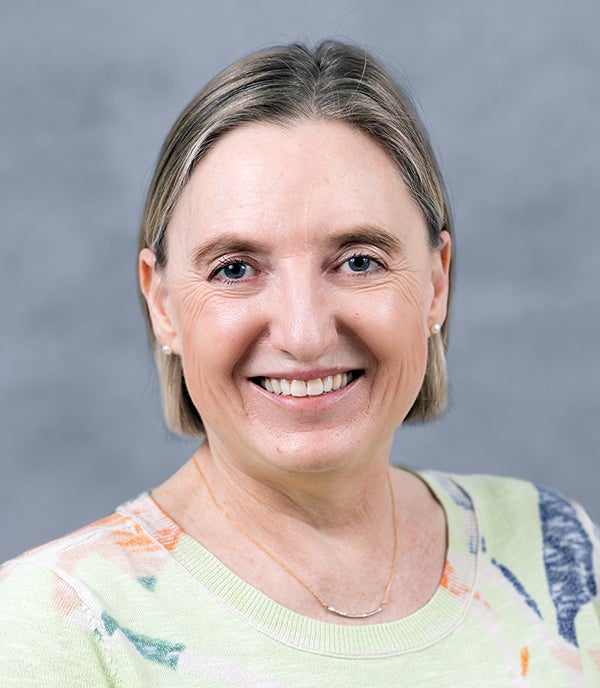
Professor of Disability Studies and Associate Head of Administration, Department of Disability and Human Development
Presentation Title: Experience as Theory
Bio: Carrie Sandahl is professor of disability studies and associate head of administration at the University of Illinois Chicago in the department of disability and human development. She co-directs Chicago’s Bodies of Work, an organization that supports the development of disability art and culture. Her research and creative activity focus on disability identity in performance and film. Sandahl’s publications include a co-edited an anthology, “Bodies in Commotion: Disability and Performance,” which garnered the Association for Theatre in Higher Education’s award for Outstanding Book in Theatre Practice and Pedagogy (2006). Her collaboratively created documentary, Code of the Freaks, a critique of disability representations in cinema, premiered in 2020.
Abstract: The appearance of disability in public always evokes questions, whether they are verbalized or not. Disabled people must perform a character in response to these questions from scripts we ourselves did not write. I grew up with an innate understanding of how performance defines our realities as disabled people. That is probably why I became a theater scholar and artist. As a scholar, I am interested in analyzing artistic traditions to uncover how scripts of disability emerge and evolve over time, shaping and effecting everything from social policy to medical decision making. I am even more interested in how disabled artists themselves push back against disability oppression by creating new work that calls out stereotypes, transforms artistic mediums, articulates alternative ways of understanding disability identity, and forges a distinct disability subculture. experience through both the study of and the creation of disability art and culture. My students and I work to effect change in theater, dance, music, and the visual arts. Our activities include collaborations with Chicago-based disabled artists to develop new work that illuminates the disability experience in unexpected ways.
Thomas Searles, PhD Heading link
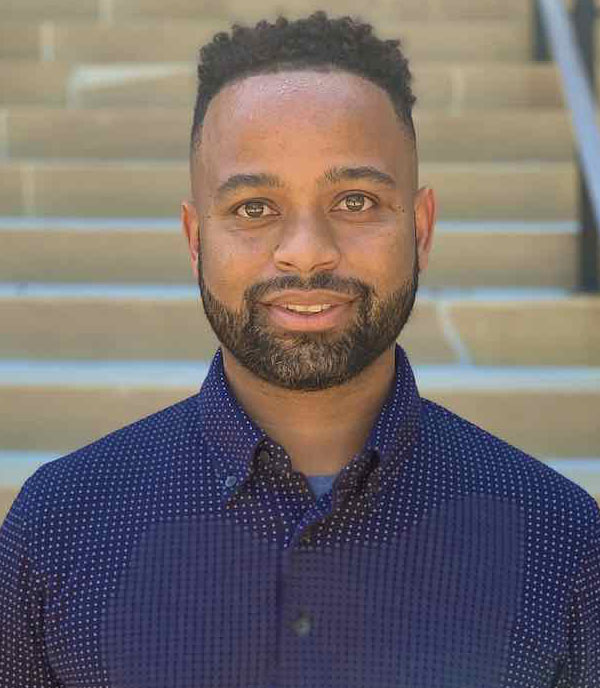
Associate Professor, Electrical and Computer Engineering
Presentation Title: Quantum Engineering at UIC
Bio: Thomas A. Searles is a quantum engineer and experimental condensed matter physicist from Albany, GA. He graduated from Morehouse College with a BS in Mathematics and Physics and Rice University with a PhD in Applied Physics. In 2021, Searles joined the University of Illinois Chicago as an associate professor, under the University System’s Distinguished Faculty Recruitment Program. Prior to UIC, he was a Martin Luther King Visiting Professor at MIT and served as co-founding Director of the IBM-HBCU Quantum Center at Howard University. He currently leads a multiyear, multimillion-dollar consortium for quantum engineering education sponsored by the Department of Energy. In recognition for his research in light-matter interactions and his capability to mentor students in Physics and Engineering, Thomas was the recipient of the inaugural AIP-NSBP Joseph A. Johnson Award for Excellence and an NSF CAREER Award.
Abstract: Quantum information technology is emerging and expected to disrupt current critical communications, computing, and sensing infrastructure. Importantly, each of the near-term applications of quantum information are recognized globally as challenging in both a scientific and technological sense. Key limiting factors of quantum advantage over traditional technologies is fault-tolerance, noise reduction and error correction. As such, an emerging field, quantum engineering aims to using traditional engineering principles and apply them to quantum phenomena, systems and devices. In this talk, we overview current research in quantum engineering at UIC in quantum computing and optics/communications. Further, the community also recognizes that the realization of advanced quantum technologies requires a skilled, diverse workforce to bring ideas central to quantum information to real-world application outside of the laboratory. And, we will detail present activities at UIC to update an ABET-accredited Engineering Physics curricula and encourage students to gain experience and knowledge in quantum engineering.
Amita Shetty Heading link
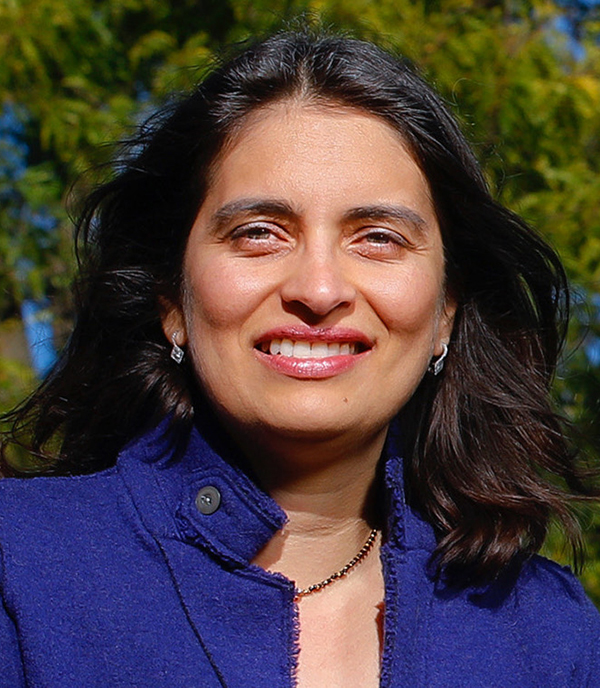
Director, Break Through Tech Chicago
Presentation Title: Break Through Tech Chicago More Than Doubles the Number of Women, Nonbinary Students in Computing Disciplines in Four Years at UIC
Bio: Amita Shetty has more than 25 years of experience in corporations and startups. Prior to joining Break Through Tech Chicago, she was senior vice president of business development at GATX Corporation, where she pursued investments in support of the company’s growth and diversification and led the North American strategy, marketing, and commercial technology functions. Earlier in her career, she worked for General Electric, holding positions in GE Capital, GE Corporate, and GE Transportation.
Shetty is an advocate for socioeconomic and gender equity, advocating for leadership roles for women in the workplace and advancing economic outcomes for women globally. She is active in Social Venture Partners Chicago, an organization comprised of individuals pooling their time and expertise to scale the social impact of Chicago’s nonprofits. She holds a bachelor’s degree in civil and environmental engineering from Lafayette College and an MBA from the Kellogg School of Management at Northwestern University.
Abstract:
Despite an increasing embrace of the value of gender diversity in the workplace and rapid tech job growth, the U.S. tech sector remains dominated by men. Part of that imbalance owes to the supply of qualified women and nonbinary job candidates: those who have the degrees in computer or data science required to compete for tech roles. For example, while the majority of all U.S. bachelor’s degree graduates are women — 58% — only 21% of those who complete computer science degrees are women.
The number of UIC women and nonbinary students enrolled in four target tech majors (CS, CS+Design, CS+Linguistics, Data Science) and CS minor has doubled since the year before BTTC’s inception to almost 600 students as of fall 2023. Women and nonbinary people make up a greater proportion of the population in those majors, too — 26% as of fall 2023, up from 19% in 2019. These results predominantly stem from focusing on the following three measures:
- BTTC removes barriers to academic experimentation by offering a dedicated section of UIC’s introductory computer science course, CS 111, that assumes zero prior knowledge and that rewards risk-taking and diverse ways of thinking. This course, consistently offered each summer, provides students with college credit. BTTC programming is tied directly to UIC coursework and designed expressly for the needs of UIC’s demographic pursuing majors such as biology, finance, and psychology.
- Experience has shown that simply holding a degree is not enough to “crack the code” of tech employment for students emerging from a bachelor’s degree program, especially for those from underrepresented backgrounds. To be selected for rewarding tech roles, graduates must enter the job market with a substantial résumé of internships. BTTC encourages students who complete CS 111 to build their résumés by applying for a wage-earning micro-internship called a Sprinternship at one of 20+ Chicago-area companies. 330 students have completed a BTTC Sprinternship to-date. More than two-thirds of Sprinternship companies have offered a full-length internship or a full-time job to their Sprinterns in the past two program cycles, with approximately 1 of 2 students receiving an immediate offer. The program succeeds in providing a gateway work experience that moves women and nonbinary students out of the “pre-experience” category and allows them to access broader tech job opportunities.
In addition to the programmatic efforts above, several changes were adopted at the college and department levels. Examples include and are not limited to modification of the pre-requisites for a CS minor, launch of new interdisciplinary majors such as CS+Design, and intentional communication campaigns designed to incent women, nonbinary students to accept their UIC CS admissions offer for the fall semester. Leadership support was paramount to implement all such initiatives.
Rebecca Singer, DNP, RN Heading link
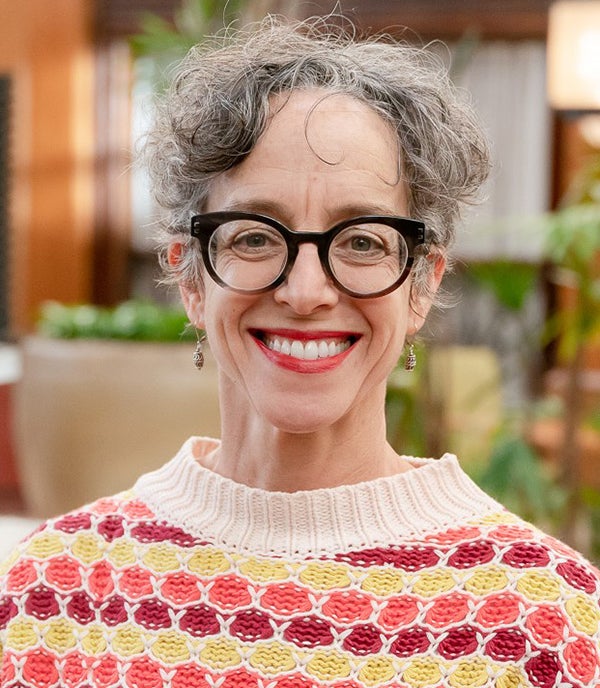
Clinical Assistant Professor/Co-Lead Outbreak Response Team
Presentation Title: Outbreak Response Team: Collaborating to Protect Our Community
Bio: Rebecca Singer, an assistant clinical professor of population health at UIC’s College of Nursing, has two decades of experience in global health and community partnerships. Her work has taken her around the world collaborating to provide essential health care to individuals, families, and communities. Domestically, she has worked in torture treatment centers, correctional institutions and reproductive health clinics providing care that enhances health and dignity. Since 2020, Singer has co-lead the Outbreak Response Team (ORT) which focuses on providing services to people most vulnerable to poor outcomes due to where and how they live, work, play and love. The ORT collaborates with the Chicago Department of Public Health to provide testing, vaccination and infection control expertise in response to infectious diseases as part of the city’s pandemic preparedness. Singer was also a co-PI on a NIH-funded study examining community impact of COVID-19. In 2022, Singer was in Sofia, Bulgaria as a Fulbright Scholar. She taught in the faculty of public health at the Medical University of Sofia and provided strategic planning support to Shalom: the Organization of the Jews of Bulgaria.
Abstract: The Outbreak Response Team is an innovative academic-community partnership between UIC and the Chicago Department of Public Health. Our team of faculty and student workers focuses on providing testing, vaccination and infection control services to those most at risk of poor outcomes from outbreaks in the places where they live, love, work, and play. We partner with the Department of Public Health and community members to provide patient centered, accessible, and culturally appropriate services to improve the health of all of us.
Since our founding in 2020, we have responded to COVID-19, mpox, influenza, measles, several food borne illnesses, Ebola Virus Disease and multi-drug resistance organisms. Our work has taken us to long term care facilities, shelters for those experiencing homelessness, correctional institutions, mobile vans, bars, bath houses, street fairs, community centers and block parties. We continue to build our network of partners throughout the city working to enhance trust in our health care system and increasing access to care for all.
Joseph Strickland, PhD Heading link
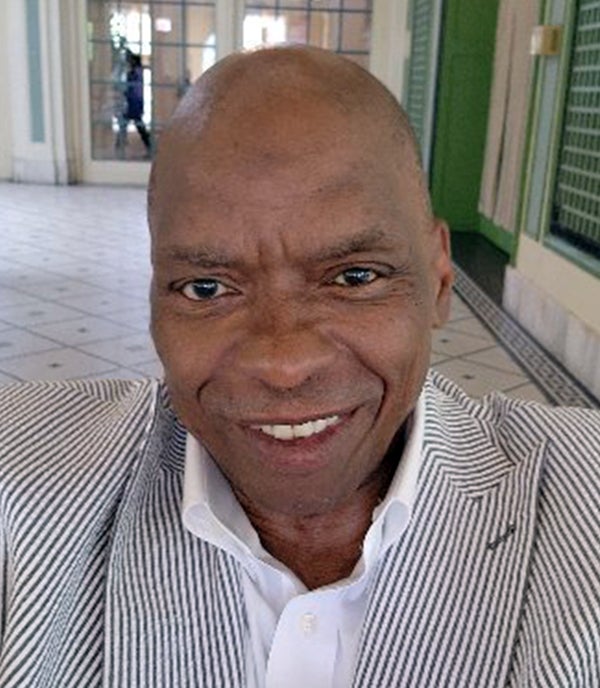
Senior Research Specialist, Jane Addams Center for Social Policy and Research
Presentation Title: Jane Addams Center for Social Policy and Research’s Urban Scholars Program
Bio: Joseph Strickland is a senior researcher for the UIC Jane Addams Center for Social Policy and Research and adjunct professor at the University of Illinois Chicago. Strickland has over 20 years of experience in designing and leading community-based programs for community development, ex-offenders, youth, and community health. His research focuses on how Black males overcome traumatic circumstances such as incarceration, episodes of violence and social isolation. Strickland holds a PhD in Social Work from University of Illinois Chicago, a master’s in social work from University of Chicago, and a bachelor’s in general studies from Roosevelt University.
Abstract: The Urban Scholars Program focuses on providing former prisoners who are interested in advancing their education or working in academia an opportunity to receive mentoring, support (through identifying and applying to schools) and work on an actual research project. The scholars enter the program as graduate students and receive a $600 stipend. Lack of education or being undereducated, is a contributing factor why many individuals become incarcerated. They may have attended schools with poor educational methods, or their relationships with their teachers were lacking and they dropped out, or their performance was so poor that they felt academic success was unachievable. The Urban Scholars Program was started to help people in those situations — people who are returning to their community and need a network to support them in expanding their education and career after receiving a master’s degree.
Nebiyou Tilahun, PhD Heading link
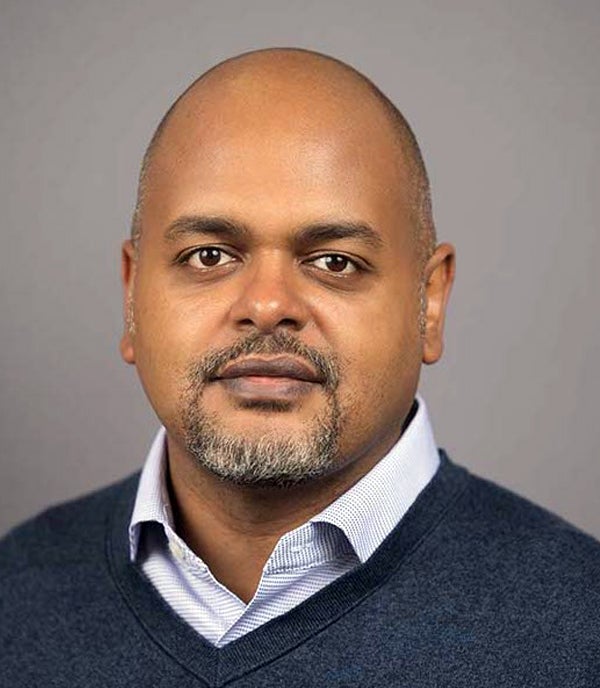
Associate Professor and Director of Graduate Studies, Department of Urban Planning and Policy
Presentation Title: Are Police Stops Racially Biased? Insights from Police Stops and Automated Citations in Chicago
Bio: Nebiyou Tilahun is an associate professor in the department of uban planning and policy. Tilahun received his PhD in civil engineering from the University of Minnesota and has been a faculty member at UIC since 2012. Tilahun’s research focuses on travel behavior, transport accessibility, and transportation equity. His work has examined the transit last mile problem, the equity of transit accessibility, and more recently, the safety and equity implications of automated traffic enforcement.
Abstract: The question of whether and to what extent police traffic stops are racially biased has gained prominence in public discourse and in urban transport planning. In this presentation, I discuss findings from collaborative work with multiple researchers comparing police stops and citations from speed cameras by race against the racial composition of drivers. Our analysis finds that the violation rate by race from automated speed cameras is generally proportional to the racial mix of drivers on a roadway. On the other hand, Black drivers have a significantly higher chance of being stopped on roads irrespective of the proportion of white drivers present.
Katie Vanderzwan, DNP, APRN, CHSE Heading link
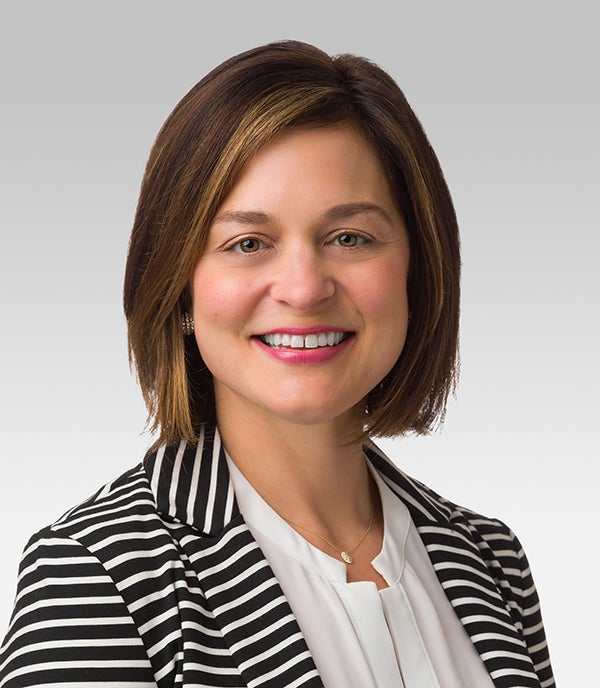
Director, Clinical Learning Resource Center/Schwartz Simulation Laboratory
Presentation Title: SimZones
Bio: Dr. Katie Vanderzwan has been clinical faculty at the University of Illinois Chicago College of Nursing since 2012. She is currently a Clinical Assistant Professor in the Department of Biobehavioral Nursing Science and Director of the Clinical Learning Resource Center/Schwartz Simulation Laboratory at the UIC College of Nursing. Dr. Vanderzwan has taught and coordinated a variety of courses in the prelicensure nursing curriculum (BSN, MSN) and DNP program over the last 10 years. She is also a practicing board certified acute care nurse practitioner and attained both her MSN (’06) and DNP (’17) from UIC with her DNP project focusing on the use of simulation to evaluate nurse competencies. Dr. Vanderzwan is a strong advocate for simulation-based education and is a certified health care simulation educator (CHSE).
Abstract: This presentation will define simulation-based education and discuss the use of Sim Zones, as an organizational system for the use of simulation-based education in health care.
Abstract: This presentation will define simulation-based education and discuss the use of Sim Zones, as an organizational system, for the use of simulation-based education in health care.
Andrea Vaughan, PhD Heading link
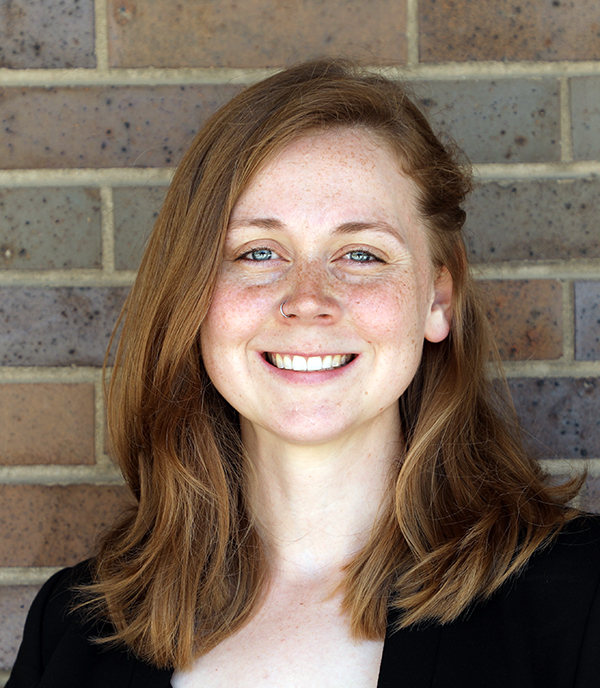
Visiting Research Assistant Professor, College of Education
Presentation Title: Transforming Chicago: Inspiring Hope, Sharing Knowledge, and Engaging Families
Bio: Andrea Vaughan is a researcher, organizational leader and educator devoted to understanding and deepening learners’ experiences across in- and out-of-school contexts. Vaughan is a visiting research assistant professor in the College of Education at the University of Illinois Chicago. She also serves as the interim director of the Center for Literacy, the community engagement arm of UIC’s College of Education, where she leads research, programming, partnerships and operations. Vaughan deeply values the opportunity to put research into practice to make a difference in the lives of Chicago families, and to learn with students, community partners, and a dedicated team of educators every day.
Abstract: For more than 30 years, the Center for Literacy has served families on Chicago’s South and West sides through a unique partnership between the city and its only major public research university, UIC. Through adult and family education programming (including digital literacy, financial literacy, employment readiness, and parenting/fatherhood initiatives), professional development for early childhood educators and family service workers, and our Resource Center for Autism and Developmental Delays, CFL serves over 5,000 families each year. CFL is the longstanding community-engagement arm of the College of Education, and our work is essential to the College’s mission to advance knowledge, inspire learning and engage communities.
Sanjeev Vidyarthi, PhD Heading link
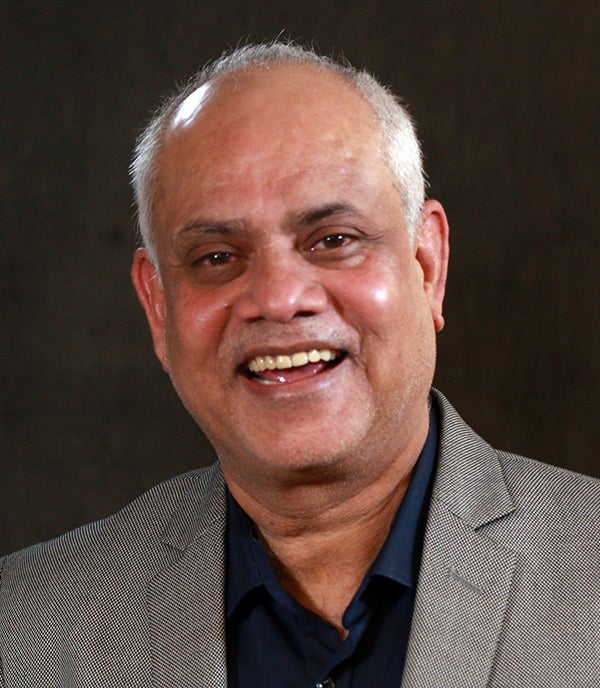
Professor and Department Head, Director, Master of City Design Program, Urban Planning and Policy
Presentation Title: Advancing University-Community Partnerships via Community Engaged City Planning and Design Studios
Bio: Professor Sanjeev Vidyarthi is a premier scholar and proven leader. Exploring the case of contemporary India, he studies who does the planning work in such a massive, complex country and how. Sanjeev’s scholarship combines two main sources of knowledge: extensive experience making and studying spatial plans shaping our rapidly urbanizing planet and scholarly debates about the meaning and purpose of planning. Author of several thoughtful books and meaningful essays, Sanjeev works with progressive scholars and professional practitioners worldwide.
On the institutional side, Sanjeev led the founding of the inventive, Chicago-immersive Master of City Design program at the UIC. He currently heads the department of urban planning and policy celebrating the golden jubilee of foundation (1973-2023) with 2500+ successful graduates and counting.
Abstract: University leadership leveraged UIC’s urban location with the campus merger in the early 1980s. The Great Cities Initiative in 1995 created the Great Cities Institute and the College of Urban Planning and Public Affairs to spearhead campus engagement with educational and research challenges tied to global urbanization. Although the city design legacy and unique urbanity of Chicago have a solid worldwide reputation since the turn of the 19th century’s city beautiful movement, the region had never housed a city or urban design program until recently.
Using CUPPA’s extensive ties with areawide institutions and practitioners, UIC’s department of urban planning and policy promotes participatory design for training future-oriented city planners and urban designers via our graduate programs. While the well-known Master of Urban Planning and Policy celebrates its golden jubilee this year, our Master of City Design is relatively new. Launched in 2019, the Chicago-immersive curriculum offers an intensive urban design educational experience possible only in a dynamic and diverse city of ethnic neighborhoods like Chicago. Drawing students from near and far, we conceive and deliver place-based studios exploring urban and suburban contexts across Chicagoland through meaningful university community partnerships.
For instance, our spring studios explore inventive solutions, combining cutting-edge concepts like green and blue infrastructures, integrative analyses of subterranean soil absorption capacity and hydrological flow patterns, for tackling urban flash floods increasingly affecting many cities worldwide including Chicago. Experts and guest lecturers like Carol Ross Barney, Designer of the Chicago Riverwalk, Adam Flickinger, Lead planner, Friends of the Chicago River and Terry Guen, Landscape Architect of the Millennium Park, offer insights and knowledges difficult to match anywhere. Studio showcase at prominent locations like the Chicago Architecture Centre helps promote informed public debate around the impending implications of changing climate for the city design of Chicago.
Advancing the University-community partnership further, the intensive MCD summer studio, aka ‘Chicago Charrette,’ is purposefully designed as the capstone for graduating students. Centered upon the critical notion of improving the quality of public open spaces for everyone, the summer 2022 and 2023 Chicago Charrette took place in McKinley Park in partnership with a wide range of relevant stakeholders Including the McKinley Park Development Council. Using participatory tools and engagement techniques like design popups, focus groups, visual preference surveys, and town hall meetings, students co-created design plans for spatial improvements. These efforts also help our mission in multiple ways including public visibility, student recruitment, promotion of better city design and strengthened university-community partnerships.
Jeff Wilson, MBA Heading link
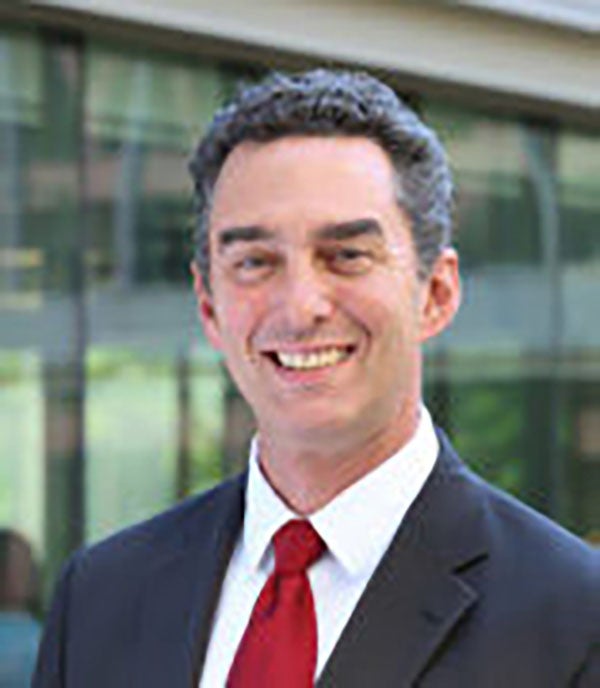
Lecturer, Student Professional Development Program (iLEAD), College of Business Administration
Presentation Title: Community Engagement
Bio: Jeff Wilson is a lecturer in the Student Professional Development Program in the College of Business Administration at the University of Illinois Chicago. He was a part of the team that worked to get the professional development curriculum required for all UIC Business undergraduate students.
He earned a BS in industrial and operations engineering from the University of Michigan, and an MBA from the University of Illinois Urbana-Champaign. Wilson supplemented his academic training with the Improv for Actors sequence of courses at The Second City.
Wilson has been quite engaged in his communities as an activist, volunteer and leader. He wrote the curriculum for BA 320 — Civic Engagement — and serves as the course director. Wilson is an advocate for engagement at every level.
Beyond civic engagement, Wilson integrates career engagement and campus engagement into his professional development classes (BA 100, BA 220, BA 420, and BA 520). He is an avid supporter of student organizations at UIC.
Prior to teaching, Wilson served as director of the Business Career Center at UIC. He also has extensive experience in career coaching, leadership development and alumni relations.
Abstract: BA 320 – Civic Engagement (8-week, 1-credit) was first offered in the fall of 2016. It was created to encourage UIC Business students to engage in their communities, and to be good citizens. In this course, we seek to expose students to issues at the local, national, and global levels through a variety of guest speakers and discussions.
Our text is “Soul of a Citizen,” by Paul Loeb. We have weekly discussions about the assigned readings, all toward helping students to see themselves as activists.
Elections fit nicely into our conversation since so many of the most complicated issues have root causes that need legislation to help resolve.
All of my students are required to participate in an experience called the Unify Challenge College Bowl – a one-hour video conversation with a student from one of 200 colleges and Universities across the country. The algorithm that pairs them seeks maximum difference (political, geographical, racial, gender, etc). Their conversation is guided by prompts, and covers a variety of emotionally-charged topics (abortion, gun control, immigration, transgender bathroom access). The objective of this is to bridge difference with personal stories and experiences.
A major part of the student’s experience in this course is direct service. Students are assigned to one of six teams in the first week. Each team is connected to a local non-profit organization. Students must complete 10 hours of service, ranging from sorting food/cloths, serving meals in homeless shelters, assisting with special events, documenting fauna on UIC’s campus, assisting immigrants in their path to citizenship, to reading to cats and dogs in an animal shelter. Student teams present their experience as a PSA in our final class.
During the pandemic, and the year following, we pivoted to virtual engagement experiences. The first two semesters, we worked with UNHCR – the UN Refugee Agency. Students learned about the plight of refugees and displaced people in Burkina Faso. Student teams were challenged with coming up with new ideas on the topics of economic development, education, and safety. They pitched their proposals to Ashley Anderson, associate livelihoods and economic inclusion officer. She shared these ideas with her team, which actually implemented components of several of their proposals.
We then moved closer to home – the neighborhoods to the west of UIC’s campus. We partnered with a wonderful local nonprofit – Earth’s Remedies, to provide business consulting services to (very) small Black/Brown-owned businesses that were struggling because of the pandemic. This gave students (mostly juniors and seniors) the opportunity to use their business education and life experiences to help businesses neighboring UIC. The clients were identified by Earth’s Remedies (Mercedes Pickett), who also did the majority of the work in scoping the issues (mostly marketing and operations) that students addressed. Students were assigned to consulting teams. They met with the client, created a consulting proposal to address the assigned issue, and presented this to the client in our final class. These were not complex engagements – students only had four weeks to work on this, but their ideas have been very well received by clients.